

NDFU members get together for 96th annual meeting JANUARY 2023 CELEBRATION! NDFU union farmer JANUARY 2023 • ndfu.org
I was born and raised on a small grain farm in Pisek, N.D., and was educated at Pisek Public School. During my youth, I attended Farmers Union Camp at Lake Tobiason and have great memories of my time spent there.
I am married to my wife Larissa Feldner of Munich. I have two stepchildren, Megan and Benjamin. We also have two dogs, Daisy and Otis.
I attended North Dakota State College of Science in Wahpeton and obtained my associates degree in John Deere ag tech.
After graduation from NDSCS I worked for RDO equipment, and in 1994, I had the opportunity to go to the former Soviet Union territory of Turkmenistan to help unload and set up combines and cotton pickers for the country.
After my contract was completed, I returned to North Dakota and attended North Dakota State University, where I completed my studies in agriculture systems management. After graduation, I worked for Case IH and held several titles during my


Lynn Kadlec Agency

1551 28th Ave S, Ste. A Grand Forks ND 58201
PH: (701) 757-5757


17-year career there.
I have always been involved and engaged in agriculture in some way, shape or form. As an insurance agent of six years now, my primary focus is on our farm and crop insurance customers. I also am a car buff, so I like visiting and helping customers with their classic cars and everyday drivers.
In my spare time, I enjoy hunting and fishing, working on cars and taking trips with Larissa.
2 • January 2023 • Union Farmer SIMPLY DIFFERENT!
GET TO KNOW A FARMERS UNION INSURANCE AGENCY
Kadlec Agency North Dakota Farmers Union @NDFarmersUnion CONNECT WITH US Read the Union Farmer online at http://ndfu.org/news/union-farmer UNION FARMER MAGAZINE The UNION FARMER is published monthly by North Dakota Farmers Union at 1415 12th Ave SE, Jamestown, ND 58401. EDITOR: Chris Aarhus 800-366-6338 caarhus@ndfu.org Annual subscription is $30 with membership. Periodicals postage paid at Fargo, ND. POSTMASTER: Send address changes to: NDFU • PO Box 2136 Jamestown, ND 58402-2136 Copies mailed this issue: 38,228 • USPS 016-211 Volume 70 • Number 1 @NDFarmersUnion BOARD OF DIRECTORS President: Mark Watne • Vice President: Bob Kuylen Secretary: Wes Niederman • Treasurer: Ronda Throener Bob Finken; Jon Iverson; Shane Sickler; Tyler Stafslien; Michelle Ziesch.
Lynn
Watne reelected NDFU President

Mark Watne of Velva was reelected to a tenth year as North Dakota Farmers Union president by members and delegates attending the organization’s 96th annual state convention Dec. 9-10 in Bismarck.
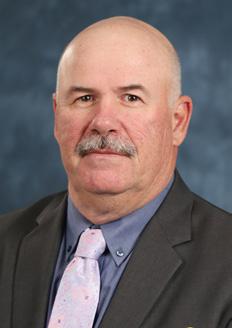
In his message to voting delegates, Watne emphasized the importance of member engagement through advancing technology and their involvement in legislative priority areas, including the crafting of a new farm bill, efforts to address corporate monopolies and fairness in the marketplace, protection of North Dakota’s corporate farming law, and growth of renewable diesel and other fuels.
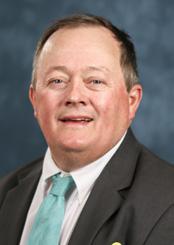
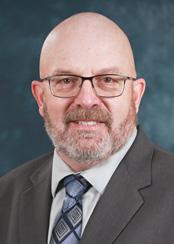
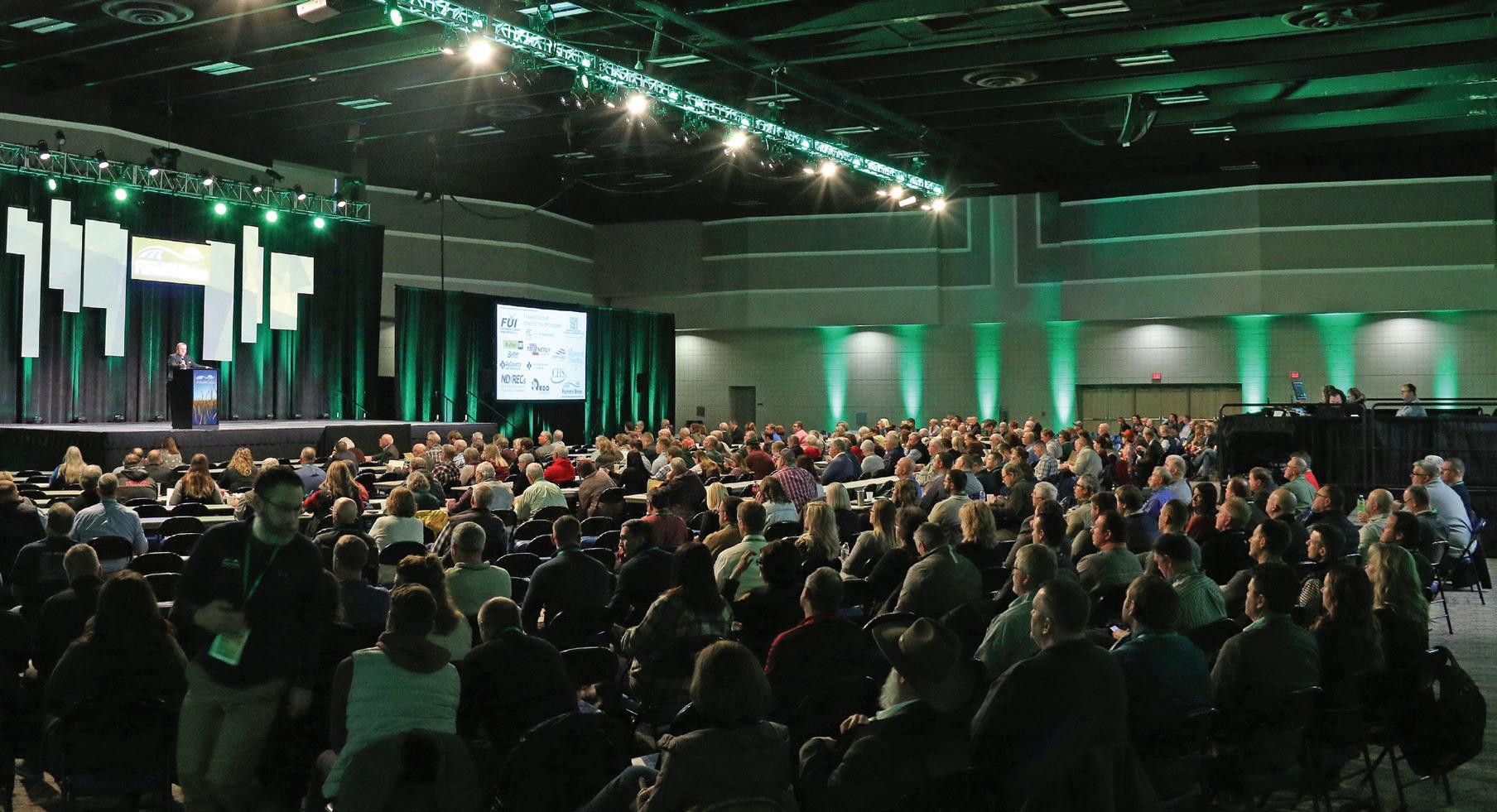
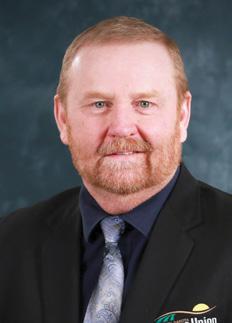
“What is it about NDFU that makes us unique? It’s the grassroots,” Watne said.

Farmers Union members adopted four special orders of business during the twoday convention in addition to their 2023 Program of Policy and Action. The orders outlined priorities for the upcoming North Dakota legislative session and a new farm bill; Congressional and administrative action to ensure fair markets for farmers and ranchers; and adequate staffing and compensation for employees of the Farm Service Agency.
Members enjoyed a series of breakout sessions that focused on fuels of the future, wetland and water issues, Farmers Union’s Fairness for Farmers campaign, and report from NDFU’s Farm Bill Working Group. Other convention speakers included National Farmers Union President Rob Larew, U.S. Sen. John Hoeven, NDSU crop economist Frayne Olson, Greg Tehven of Emerging Prairie and others.
The Agraria Mutual Group (dba Farmers Union Insurance Company) also held its 79th annual meeting in conjunction with the NDFU state convention.
In other elections, Bob Kuylen of South Heart was reelected vice president. Bob Finken of Douglas was reelected District 2 director for Bottineau, McHenry, Pierce, Rolette and Ward counties. Shane Sickler of Gladstone was reelected to the District 4 seat. That district encompasses the counties of Adams, Billings/ Golden Valley, Bowman/Slope, Dunn, Hettinger, McKenzie and Stark counties. Shelly Ziesch of Pettibone was reelected to the District 6 seat. District 6 comprises a nine-county area: Dickey, Eddy, Foster, Kidder, LaMoure, Logan, McIntosh, Stutsman and Wells.
96TH ANNUAL STATE CONVENTION • DEC. 9-10 • BISMARCK EVENT CENTER
KUYLEN NDFU.org • January 2023 • 3
WATNE
ZIESCH FINKEN SICKLER
‘Influence the change’
Watne, NDFU president, outlines organizational goals for the coming year
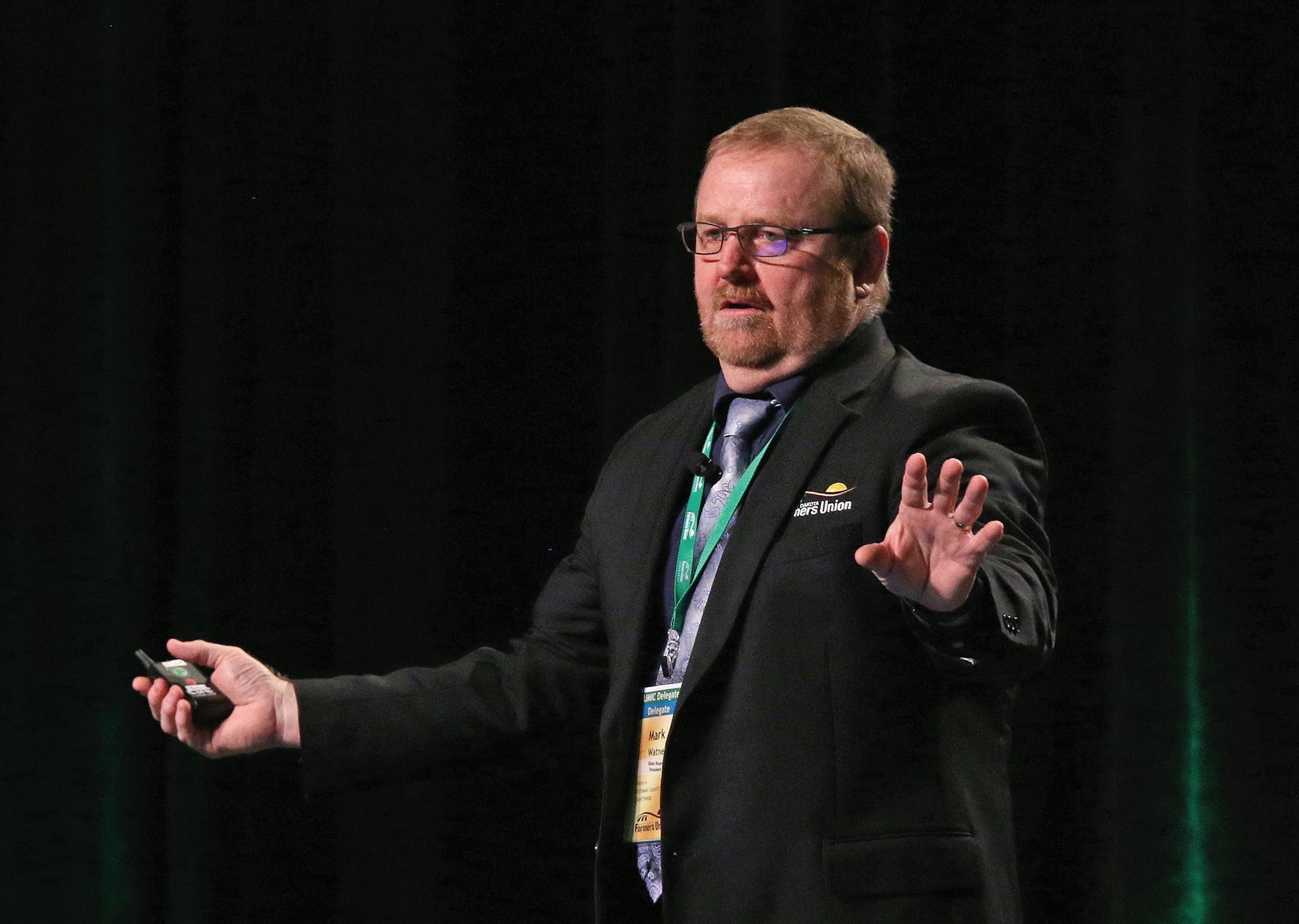
In an everchanging world, North Dakota Farmers Union’s ability to guide and influence change is an important role to fill. “It’s our job to influence the change that’s necessary, because everybody out there is trying to direct that change in their interest,” said North Dakota Farmers Union President Mark Watne in his report to members on Friday morning, Dec. 9. “We need to be directing change in the interest of family farm and ranch agriculture.”
While change is not always inevitable or necessary, Watne said, “We will always be in situations where we need to have a good thought process. We need to bring knowledge to the table. We need some balanced approach.” In the partisan divide that exists, he said Farmers Union is, inevitably, in the middle, trying to find balanced logic and common
ground. “We do our best to try and be where we can get some results.”
Watne shared the organization’s forward focus in five areas: legislative, education, membership based, value-added businesses/ cooperatives, and financial.

A new farm bill, National Farmers Union’s Fairness for Farmers campaign, a potential challenge to our state’s corporate farming law, and expansion of renewable diesel fuel are priority areas legislatively. Watne said there will be more talk in the farm bill about conservation programs, specifically carbon storage. “Our methodology is you can certainly have farmers participate in storing carbon in their soil, but you need to compensate them to do it.”
He also warned members of the possibility of
4 • January 2023 • Union Farmer 96TH ANNUAL STATE CONVENTION • DEC. 9-10 • BISMARCK EVENT CENTER
NDFU President Mark Watne talks about the coming year during his President’s Report at the NDFU state convention Dec. 9 at the Bismarck Event Center.
ND DELEGATES TO THE NATIONAL FARMERS UNION CONVENTION
March 5-7 in San Francisco
ANAMOOSE – April Marquart. ASHLEY – Terry Ulrich. BARNEY – Dalton Wiest. BOTTINEAU – Philip Neubauer, Tyler Neubauer. BOWMAN – Tim Fischer, George Siverson. CENTER – Dave Berger. COGSWELL – Olivia Throener. DAZEY – Justin Sherlock. DOUGLAS – Bob Finken. EDGELEY – Mike Schlosser. EGELAND – Adam Held. ELGIN – Wes Niederman. FORDVILLE – Julie Gemmill. GLADSTONE – Lenci Sickler, Shane Sickler. GRAND FORKS – Jeanna Smaaladen. JAMESTOWN – Lori Carlson, Mike Huebner. KINDRED – Josh Heinrich. MADDOCK –Richard Lynne. MANDAN – Mary Blumhagen, Marjorie Tomac, Miles Tomac. MCCLUSKY – Missy Axt. MENOKEN – Bill Kershaw. NAPOLEON – Carmen Rath Wald. PEKIN – John Kelly. PLAZA – Kevin Johnson. REGENT – Aaron Krauter. RYDER – Tyler Stafslien. SHARON – Ben Vig, Megan Vig. SHERWOOD – Jeri Keith, Steve Keith. SOUTH HEART – Sarah Kuylen. STANLEY – Ken Halvorson. TOLNA – Don Rude. VELVA – Shawn Kaylor. WILLISTON – Floyd Miller. WYNDMERE – Jim Dotzenrod.
another push to weaken our state’s corporate farming law. “There’s such a firm belief that the only way we can feed animals in this state is if we allow a corporate structure to come here. It’s just so wrong,” he said. “Do you know anybody, any consumer out there saying, ‘Let’s have more corporate production of livestock?’”
On the education front, growth in youth camp numbers, expansion of adult education programs, addressing member needs, and promotion of family farm and ranch agriculture through children’s books and an animated video are priorities. “We try very hard to listen to members’ needs, looking for avenues where we can get people connected to the farm,” he said, noting that family farm and ranch agriculture is the constant message diners at Founding Farmers restaurants receive, where 7,000 people are served a week.
In terms of membership priorities, Watne said, “We need every county in the state to be active. We need a lot of help from the grassroots.” To that end, he said efforts are focused on organizing members, engaging members and the public on social media, activating new leaders, and furthering consumer education.
When it comes to cooperatives, Watne urged members to get involved. “We haven’t been doing our job and making sure that Farmers Union leaders are on the board of the cooperatives we created. We’ve let people get on boards that don’t even understand why the cooperative exists.”
Animal agriculture, renewal fuels, carbon sequestration and other value-added projects are an organizational focus, as well as growth and expansion of Founding Farmers restaurants. “There’s an endless flooding of [entities] wanting Farmers Union to be part of these value-added projects,” he said. “And that’s a huge challenge.”
Lastly, Watne said growing and enhancing the financial capacity of the organization is an important priority. Especially strengthening our insurance company’s success, capacity and ability to serve members; overseeing investments; and expanding membership and support of National Farmers Union.
“I think it’s an amazing time to be part of this organization,” he concluded, “because we have the power. We have the knowledge and we’re a very balanced organization this is going to take care of business.”

NDFU.org • January 2023 • 5 96TH ANNUAL STATE CONVENTION • DEC. 9-10 • BISMARCK EVENT CENTER
NDFU delegates pass four special orders
Each year, delegates at North Dakota Farmers Union’s annual convention conclude the Policy and Action debate by passing special orders of business. These documents address specific, timely issues and highlight strong priorities for NDFU’s advocacy work. This year, delegates to the convention passed four special orders dealing with market concentration in agriculture, the 2023 Farm Bill, value-added opportunities in the next legislative session and Farm Service Agency staffing and compensation.
FAMILY FARMING AND THE 2023 FARM BILL
The 2023 Farm Bill should provide farmers with a strong, stable safety net that protects farmers and ranchers from market and weather volatility. NDFU urges Congress to protect crop insurance, which provides a critical risk management tool. Congress should also strengthen the farm safety net, establish and improve permanent disaster programs, and enact farmer-friendly climate provisions.
Strengthen the Farm Safety Net
The farm safety net should ensure family farmers and ranchers can achieve sustainable net farm income. We support changes to the existing safety net that:
• Establish a “dual enrollment option” that allows farmers to receive the higher of the Agricultural Risk Coverage or Price Loss Coverage calculated payment;
• Increase reference prices to reflect increases in production costs;

• Provide advance farm safety net payments, so producers can secure some relief during the marketing year in which losses occur; and
• Close farm program eligibility loopholes to ensure support is directed to family farmers and ranchers.
Establish and Improve Permanent Disaster Programs
Each year since the 2018 Farm Bill passed, farmers and ranchers have been forced to rely on ad hoc disaster programs. While badly needed, these programs provided uncertain
and inconsistent relief. We urge Congress to:
• Establish a permanent disaster program that supplements crop insurance indemnities when widespread natural disasters occur; and
• Strengthen the Livestock Forage Program and Livestock Indemnity Program to ensure payments accurately reflect forage and livestock losses.
Enact Farmer-Friendly Climate Provisions
Family farmers and ranchers can play a key role in mitigating climate change by storing carbon in soils. We believe policies intended to address climate change should leverage agriculture’s potential to be a part of the solution. We urge Congress to establish farmerfriendly climate provisions that:
• Create voluntary, not mandatory, options that support farmers and ranchers who adopt conservation practices;
• Increase flexibility for existing conservation programs and provide sufficient funding to meet demand;
• Increase payments for conservation practices that deliver the greatest environmental benefits; and
• Research the costs and benefits of climatesmart agriculture practices.
Thank you to the following convention sponsors: AgCountry Farm Credit Services of Mandan First Community Credit Union
6 • January 2023 • Union Farmer 96TH ANNUAL STATE CONVENTION • DEC. 9-10 • BISMARCK EVENT CENTER
FARM SERVICE AGENCY STAFFING AND COMPENSATION

In the last five program years (2018-2022), North Dakota producers have received $5.6 billion in farm program payments. Farm Service Agency (FSA) programs are a tool that producers use to maintain their farms and we must ensure adequate staffing in county offices to facilitate access to those programs and loans. Unfortunately, FSA salaries and benefits have not increased at the same rate as the private sector. This has caused a hardship
when it comes to hiring and retaining FSA county office employees.
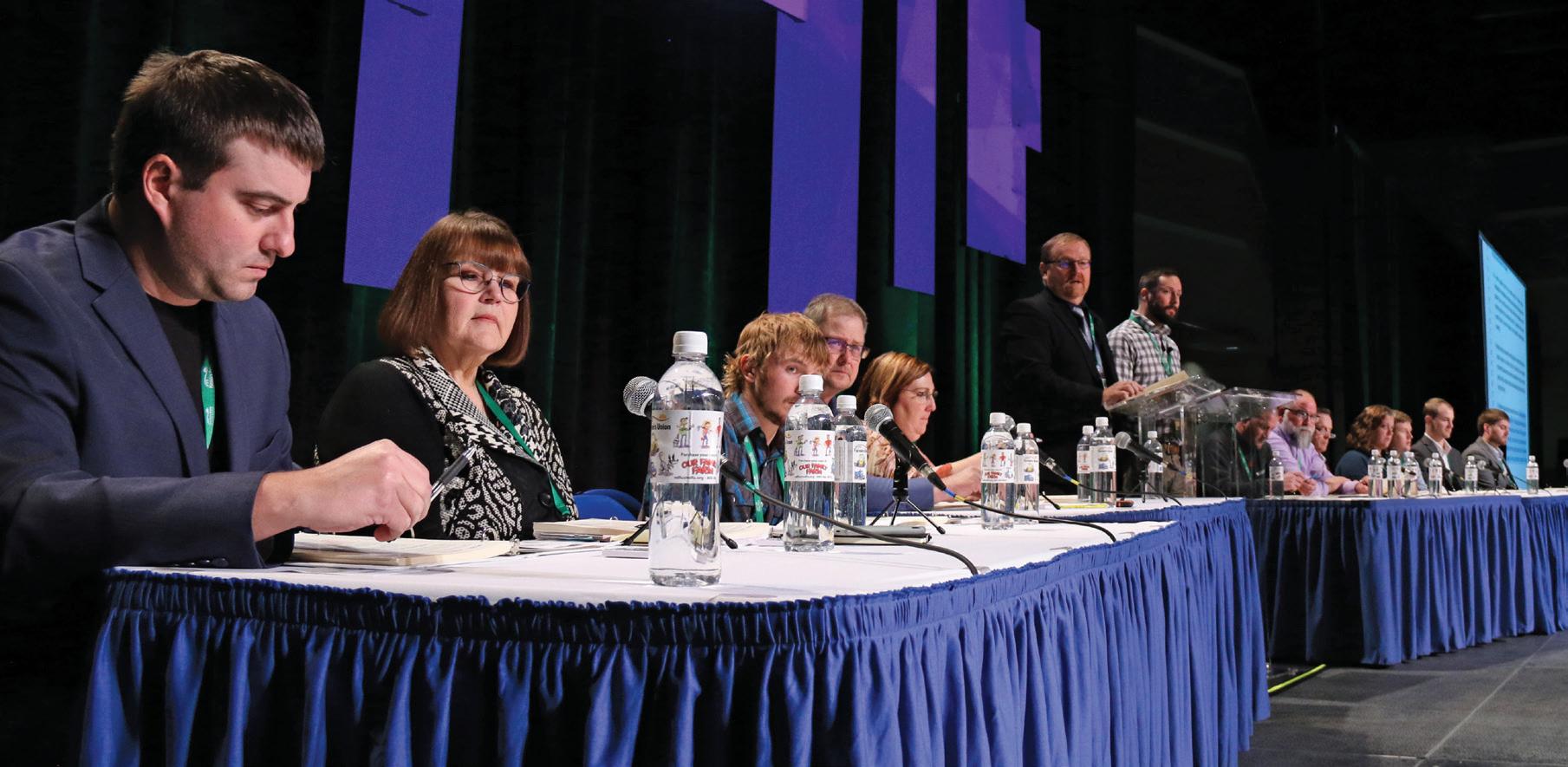
Simply allocating funds for overtime and temporary employees is not adequate to fix the staffing issue.
We call on Congress and the Administration to review and take action to increase the salaries of the county office FSA employees who are meeting producers across the counter every day.

NDFU.org • January 2023 • 7 96TH ANNUAL STATE CONVENTION • DEC. 9-10 • BISMARCK EVENT CENTER
Thank you Bismarck-Mandan Convention and Visitors Bureau! NORTH DAKOTA FARMERS UNION STATE CONVENTION SPONSOR
SPECIAL ORDERS
FAIRNESS FOR FAMILY FARMERS AND RANCHERS
Market concentration in food and agriculture markets creates major challenges for farmers and ranchers. For decades, the markets that farmers and ranchers buy from and sell to have become increasingly consolidated. In recent years, consolidation has threatened the resilience of supply chains, jeopardized supplies of critical farm inputs, and depressed prices for farm commodities.
As competition declines, multinational corporations limit farmers’ and ranchers’ choices. Consolidation in the seed, chemical and fertilizer markets has given a handful of companies outsized power to manipulate supply and prices. After years of record input costs, many farmers and cooperatives are already facing tight input supplies for the 2023 growing season.
The lack of competition in the beef processing sector has also contributed to significant volatility in cattle markets in recent years. While critical investments in local and regional processors is creating new market options for ranchers, the federal government must do more to address anticompetitive behaviors, improve price transparency and level the playing field for small processors.
The challenges caused by market concentration are exacerbated by infrastructure
and shipping constraints. Recent infrastructure investments provide significant progress toward strengthening U.S. supply chains. However, freight rail concentration and the nation’s truck driver shortage continue to plague food and agriculture supply chains.
North Dakota Farmers Union urges Congress and the administration to ensure fair markets for farmers and ranchers, including the following priorities:
• Strengthen existing antitrust laws and enforcement;
• Investigate supply manipulation and price gouging concerns;
• Avoid trade policies that would increase the market share of dominant firms;
• Invest in new fertilizer production, and regional and on-farm storage facilities in the Upper Great Plains;
• Enact the Cattle Price Discovery and Transparency Act and the Meat and Poultry Special Investigator Act;
• Increase rail competition, ensure fair shipping rates, and streamline rate review processes; and
• Address the nation’s trucker shortage, including reducing barriers to securing and maintaining a commercial driver’s license.
NORTH DAKOTA LEGISLATIVE SESSION
The 68th Legislative Assembly will convene on January 3, 2023. The legislature will face a number of important issues, including making most effective use of Legacy Fund earnings and the state’s budget surplus. North Dakota Farmers Union supports legislation that creates new opportunities for family farmers and ranchers and improves quality of life in rural communities.
We recommend the following priorities:
• Provide full funding for a new Ag Field Lab Facility at the North Dakota Agricultural Experiment Station;
• Replenish the Agricultural Diversification and Development Fund to support new and expanding value-added agriculture projects in
the state;
• Establish programs to promote local acceptance and improve access to financial incentives for North Dakota livestock producers;
• Preserve the corporate farming law;
• Support in-state fertilizer production;
• Increase funding for rural roads and bridges to address the state’s growing maintenance and improvement backlog;
• Establish a sales tax exemption for construction of on-farm grain storage;
• Improve the accessibility, quality and affordability of childcare options; and
• Streamline the regulations governing water drainage projects.

8 • January 2023 • Union Farmer 96TH ANNUAL STATE CONVENTION • DEC. 9-10 • BISMARCK EVENT CENTER
2023
(continued)
Hoeven: Crop insurance a priority
Fully funded crop insurance and a good countercyclical safety net are at the top of Sen. John Hoeven’s priority list when Congress starts writing the next farm bill. As the lead Republican on the Senate Agriculture Appropriations Committee, Hoeven said every single American needs to understand that 80% of the cost of the farm bill is in the nutrition title.
People need to be reminded of the benefit farmers and ranchers “bring to this equation –highest quality, lowest cost food supply” when funding priorities are determined, he said. “If you live in the city, you should be a doggone champion for farmers and ranchers because look at the benefit you’re getting every single day.”
Additionally, Hoeven expressed concern about market concentration in the beef processing industry. “I think it does restrict the competition and the pricing that our cow-calf guys get.” He cited Livestock Mandatory Reporting and the new cattle contract library as tools to improve transparency. “We have to do a lot more in terms of going after the big packers… and then getting a lot more of these start-ups [smaller processors] out here.”
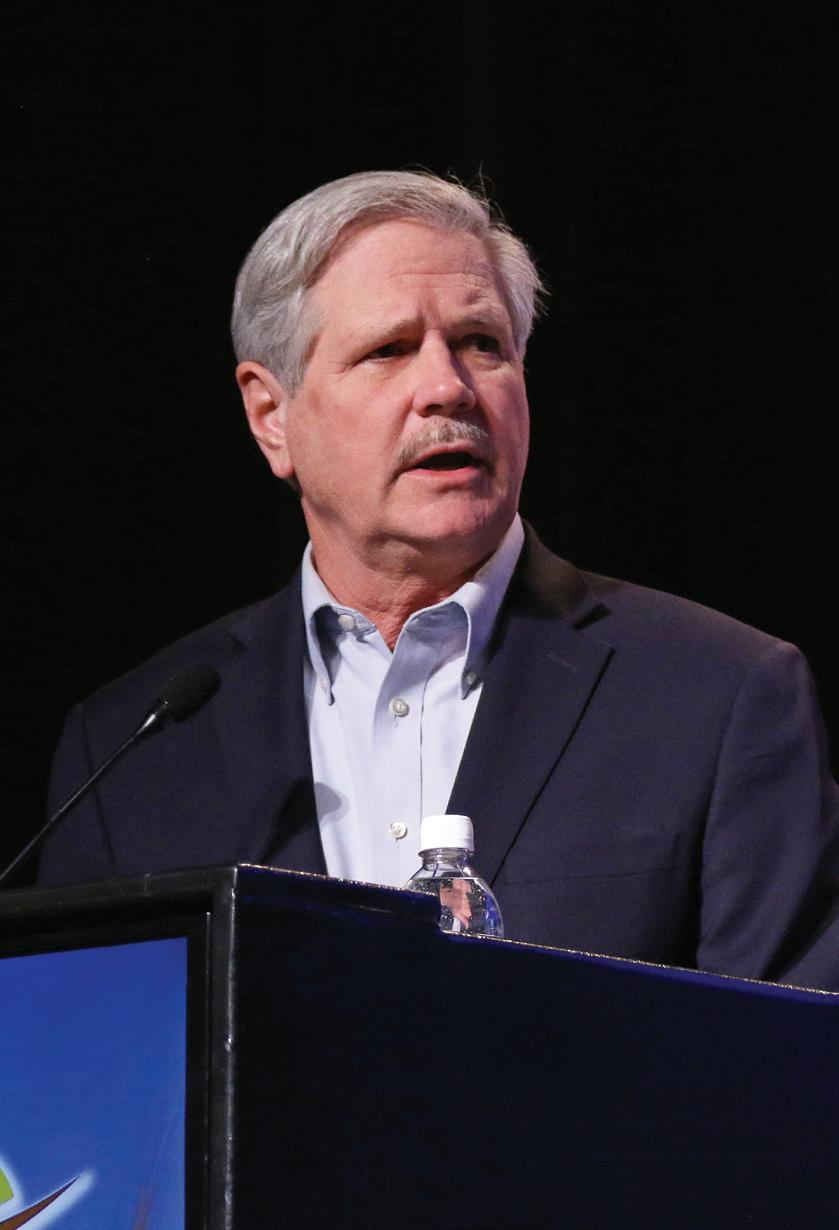

Hoeven also praised NDFU’s leadership and members, “You live, and understand, agriculture. Farmers Union, in so many ways, goes beyond that, looking for other ways to help not just farmers and ranchers, but rural America.”
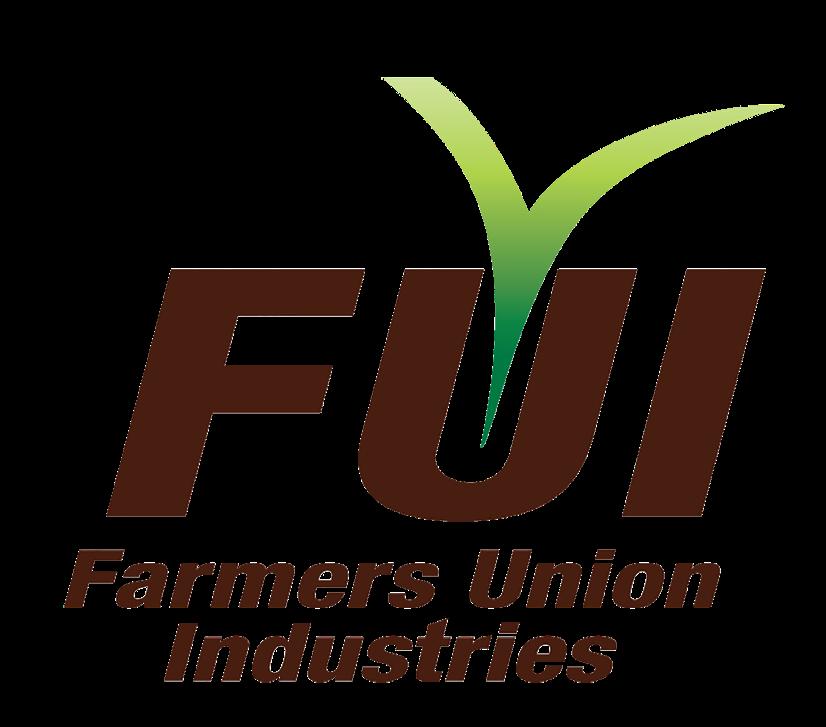
NDFU.org • January 2023 • 9 96TH ANNUAL STATE CONVENTION • DEC. 9-10 • BISMARCK EVENT CENTER
Thank you Farmers Union Industries! NORTH DAKOTA FARMERS UNION STATE CONVENTION SPONSOR
Sen. John Hoeven addresses NDFU members at their 96th annual state convention Dec. 10 at the Bismarck Event Center.
NDSU’s Olson gives market outlook
Dr. Frayne Olson, NDSU crop economist and marketing specialist, gave market updates and analyst-trader perspectives for the corn, soybean and wheat markets on Saturday morning, Dec. 10.
With the recent release by USDA of a relatively neutral report on 2023 production estimates, Olson said market focus is now on consumption demand, supplies in the bin and exports.
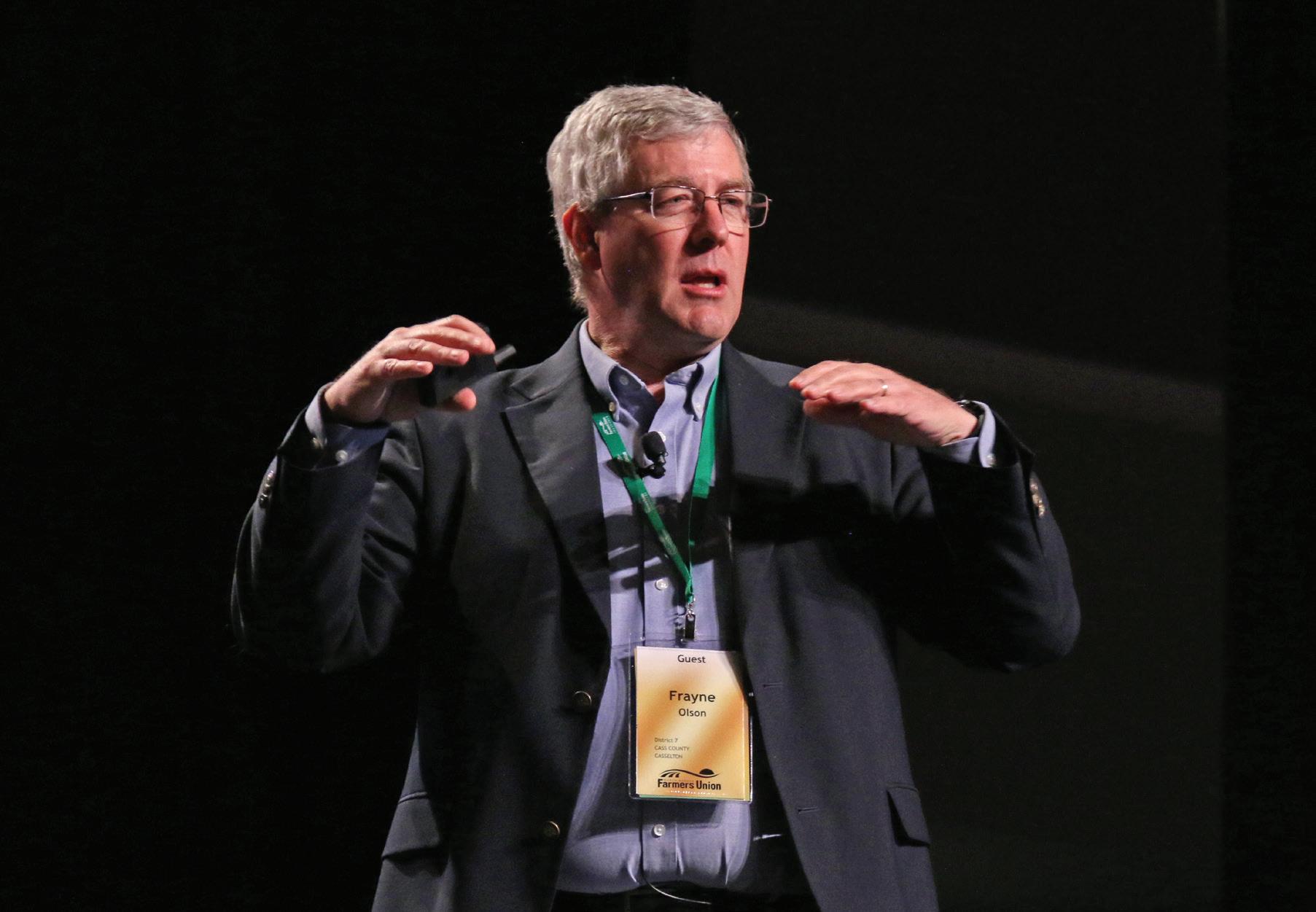
CORN

In analyzing the market, Olson said USDA’s forecast of lower consumption of livestock feed and ethanol makes sense, due to a contraction in beef and pork herds, and ethanol’s correlation to miles driven (largely as a fuel additive) rather than the price of gas or ethanol.
U.S. corn inventory is currently “uncomfortably low.” When inventories are small, he said prices tend to be higher with more market volatility. But the hardest forecast to predict is export demand, which “has the most influence on the psychology of the
marketplace.” Exports are 50% below where they were last year, which has put caution in the corn market.
For old crop corn in the bin, Olson predicted markets will drift across the board until midJanuary. “Don’t freak out about that. I do think things will pick up,” he said. “As prices go lower, it’s going to be an opportunity (for international buyers) to price something.”
Olson called new crop corn at just under $6 on the futures market, “a pretty darn good price. Let’s put this into perspective. Watch exports. If, and when, we get export sales, my opinion, that’s gonna be the time to not only start cleaning out the bins, but also make some new crop sales.”
SOYBEANS
For U.S. soybeans, Olson said renewable diesel fuel and renewable aviation fuel will have a huge impact on the market. “The real question we have is how quickly will that crush demand grow? How fast will that grow relative to our ability to expand acres, to expand yields,
10 • January 2023 • Union Farmer 96TH ANNUAL STATE CONVENTION • DEC. 9-10 • BISMARCK EVENT CENTER
Dr. Frayne Olson of North Dakota State University gives his outlook on commodity markets to NDFU members at their annual state convention Dec. 10 at the Bismarck Event Center.
and hopefully to be able to increase varieties?”
With 14 plants in the U.S. either under construction, under expansion or under development to crush soybeans and/or refine soybean oil, there would be a 20% increase in demand for soybeans (450 million bushels of capacity) if all plants became operational. “That’s substantial. And that’s permanent demand,” he said.
Globally, Brazil is planting huge acreages of soybeans, he said, and are likely to set another production record in 2023, while China’s purchase of U.S. soybeans will likely remain flat. “But if the international market is slowing and our domestic crushing is growing, we’re still in pretty good shape.”
And with U.S. ending stocks “coming in on fumes,” he said any new piece of news (positive or negative) will make the market spike or crash.
For old crop soybeans, Olson said the window to export to China is closing quickly with Brazil set to harvest soybeans in mid-January.
For new crop soybeans, he urged members to look very hard at the futures market. “I very rarely tell you guys what to do,” he said, but “look how many times we’ve gone up and bumped that $14.04 (futures price) and then fallen down. I really would like you to try and make some 2023 soybean sales. It doesn’t have to be a lot. I think you’ll look back and say that was a good sale.”
WHEAT
In the wheat market, Olson said the looming question is, “How do we use wheat up?” With

other countries taking over our export markets, the U.S. has become the global storage house for wheat. Our carryover stocks play a huge factor in wheat prices.
“When we spiked to $14 in the futures market this spring, and I asked you, ‘Why aren’t you selling old crop wheat?’ What was my most common response? It’s going to $20.” That was the case in the spring of 2008, Olson explained, but carryover stocks were less that year and production greater this year. “That’s why it was never going to go to $20.”
For spring wheat, even though inventories are down, Olson said there’s still plenty of spring wheat available globally. “So be a little cautious, again, not to get too greedy when you’re trying to sell your wheat.”
For old crop wheat, Olson foresees futures prices dropping to the $8.75 level before it rebounds for winter and spring wheat markets, most likely after the first of the year. Global wheat stocks are still relatively tight, he said, and there’s a tremendous amount of uncertainty around Russia and Ukraine.
For new crop wheat, Olson said the numbers are different, but the patterns the same. “Don’t miss an opportunity to start doing some pricing. Don’t go overboard. Don’t go crazy. A lot of things can happen. There’s a whole bunch of stuff outside of agriculture that is also causing a lot of heartburn.”
Among them are the slowing growth rate in China’s economy due to COVID restrictions, Europe’s recession, and political upheaval in Brazil, all influences beyond the weather that will have an impact in the global marketplace.
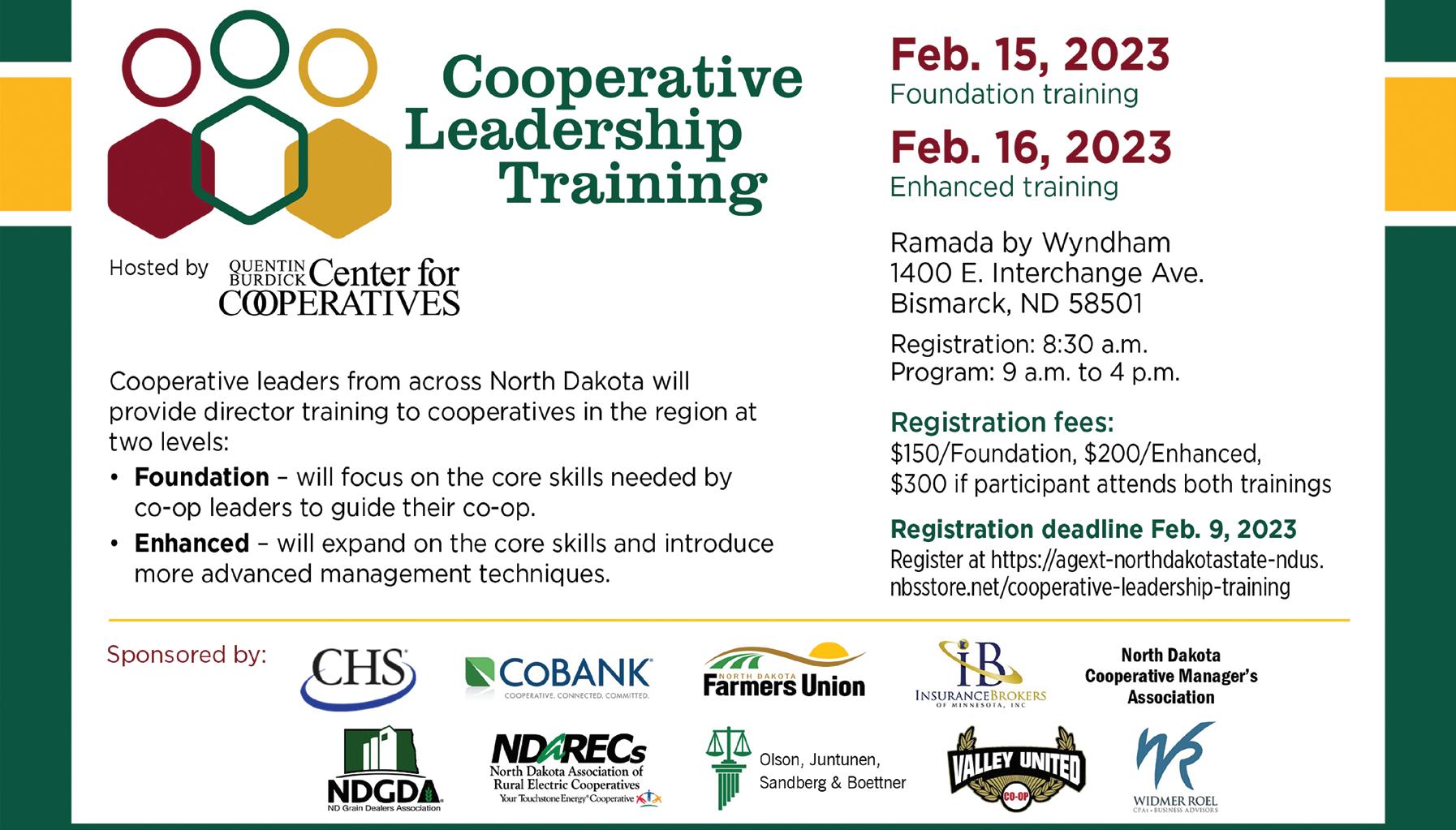
96TH ANNUAL STATE CONVENTION • DEC. 9-10 • BISMARCK EVENT CENTER NDFU.org • January 2023 • 11
NDFU youths earn Torchbearer Awards
Muster the courage to find your voice and make it heard was the powerful message National Farmers Union President Rob Larew imparted on the 2022 Torchbearer Class on Saturday evening.
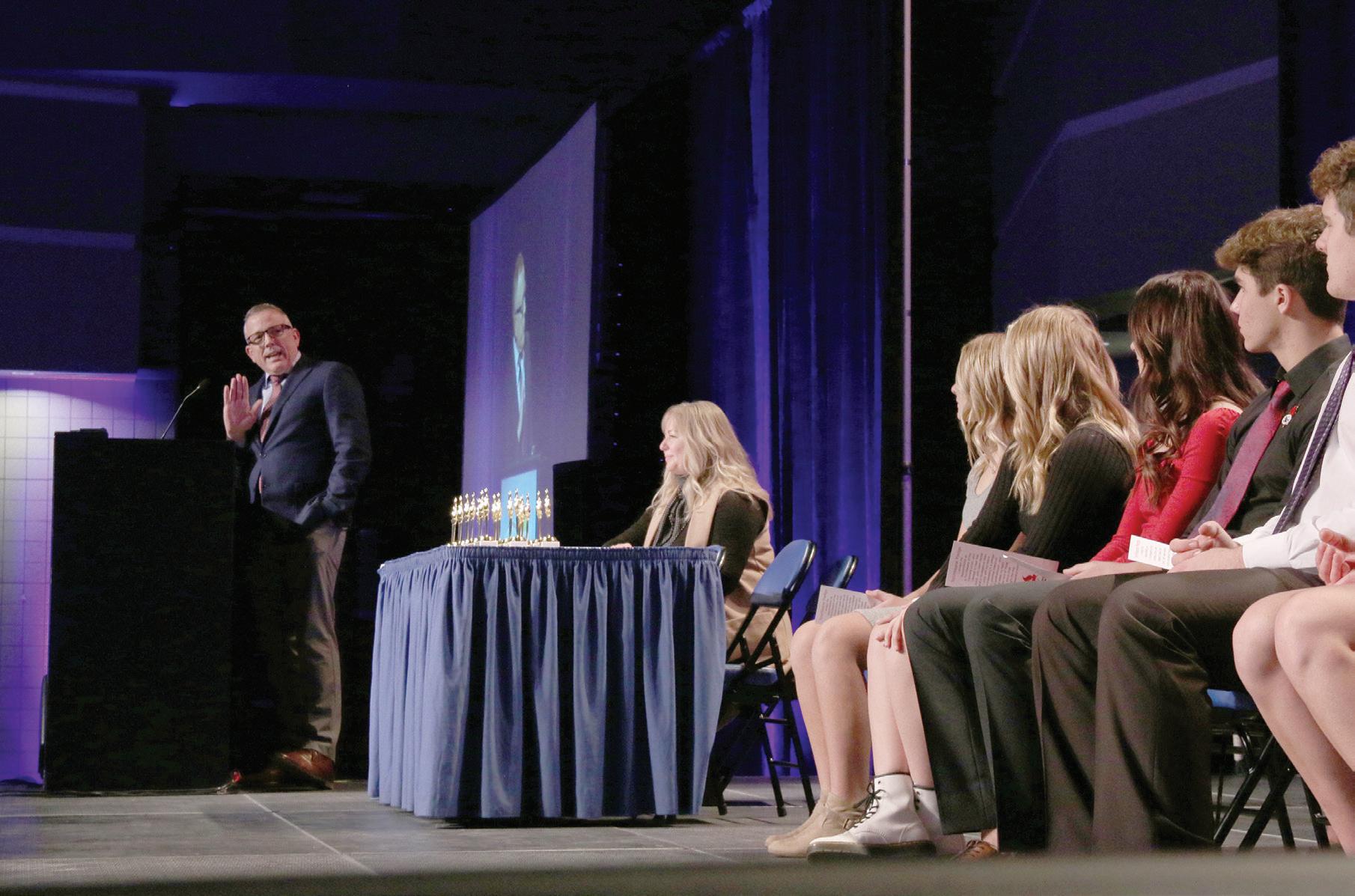
As a painfully shy youngster, Larew shared his experience growing up on a West Virginia dairy farm, often butting heads with his father while coming of age. “As I brashly stood up for my ideas, my dad would resist when he needed to, but he never held a grudge. He would simply make his case and then let it go. Looking back, I realized that the power of letting others use their voice, but not letting those differences get in the way of having a good day or even ruin a relationship, is important.”
The granting of space for new ideas and debating different points of view is how families and Farmers Union operate, Larew said. “What sets Farmers Union apart from other organizations are the values we share in support of families and communities. We stand for integrity, cooperation and justice. And we work hard and honestly… in part by using our voices and respectfully working through tough issues together.”
Larew’s wish for every Torchbearer was

courage to get out of their comfort zone and make their voice heard. He also challenged the collective Farmers Union family to listen to young leaders, “lean into their ideas and visions, and grant them space to grow and learn.”
The Torchbearer award is the highest honor that can be achieved in North Dakota Farmers Union’s youth program.
2022 Torchbearer Class
BARNES COUNTY – Haidyn Becker, Joesi Klein and Karina Olson, all of Valley City. BURLEIGH – Molly Jennings of Washburn, Luke Gader, Connor Wald and Mitchel Wald, all of Bismarck. DICKEY – Paige Henningsen of Monango. EMMONS – Paige Hulm of Linton and Kaylee Weninger of Strasburg. GRANT –Emilie Raab of Carson and Tate Rafteseth of Elgin. LAMOURE – Rylee Fischer of Edgeley. NELSON – Mary Rude of Tolna. OLIVER –Kayleigh Kraft and Breanna Vosberg, both of Center. ROLETTE – Clayton Brown of Rolette. SARGENT – Olivia Throener of Cogswell. WILLIAMS – Taylor Rath of Williston, Shelby Knox and Natalie Oster, both of Ray.
96TH ANNUAL STATE CONVENTION • DEC. 9-10 • BISMARCK EVENT CENTER
12 • January 2023 • Union Farmer
National Farmers Union President Rob Larew addresses Torchbearers during their ceremony Dec. 10 at the Bismarck Event Center.
Three youths win scholarships
The scholarship was established by Alan Bergman, past president of NDFU. To be eligible, applicants must be current Torchbearers and have at least a 2.50 GPA. The recipients were selected by a panel that evaluates each applicant’s responses to essay questions that relate to Farmers Union, rural issues and personal leadership skills.
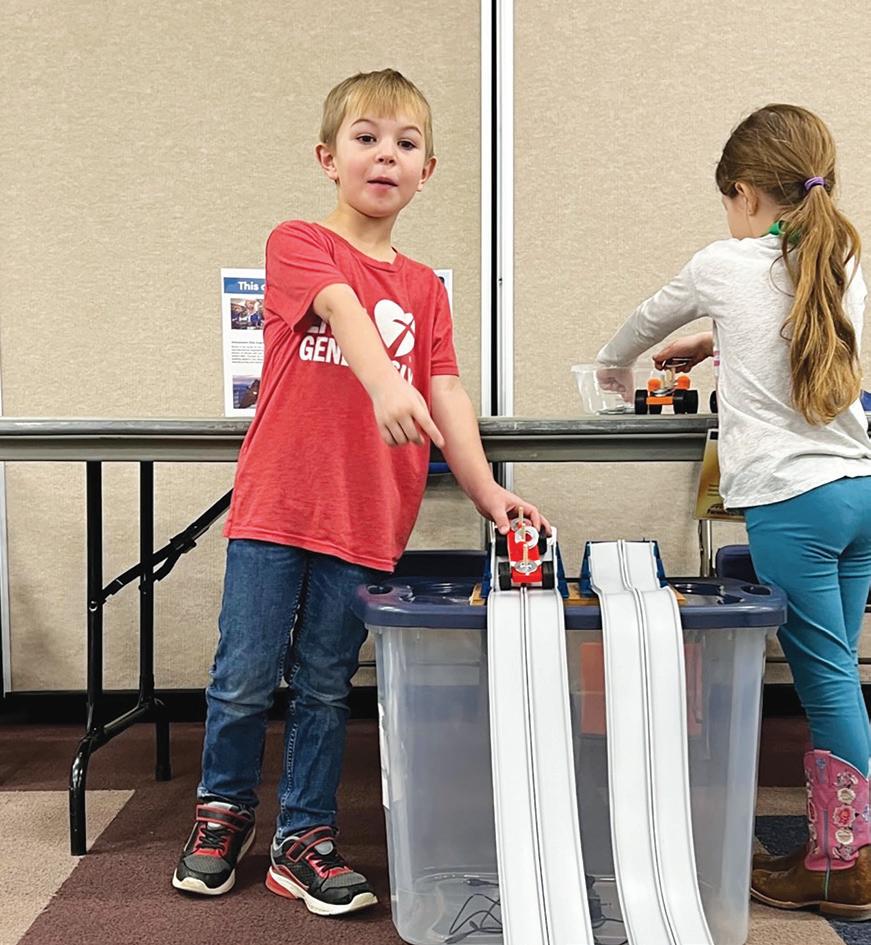
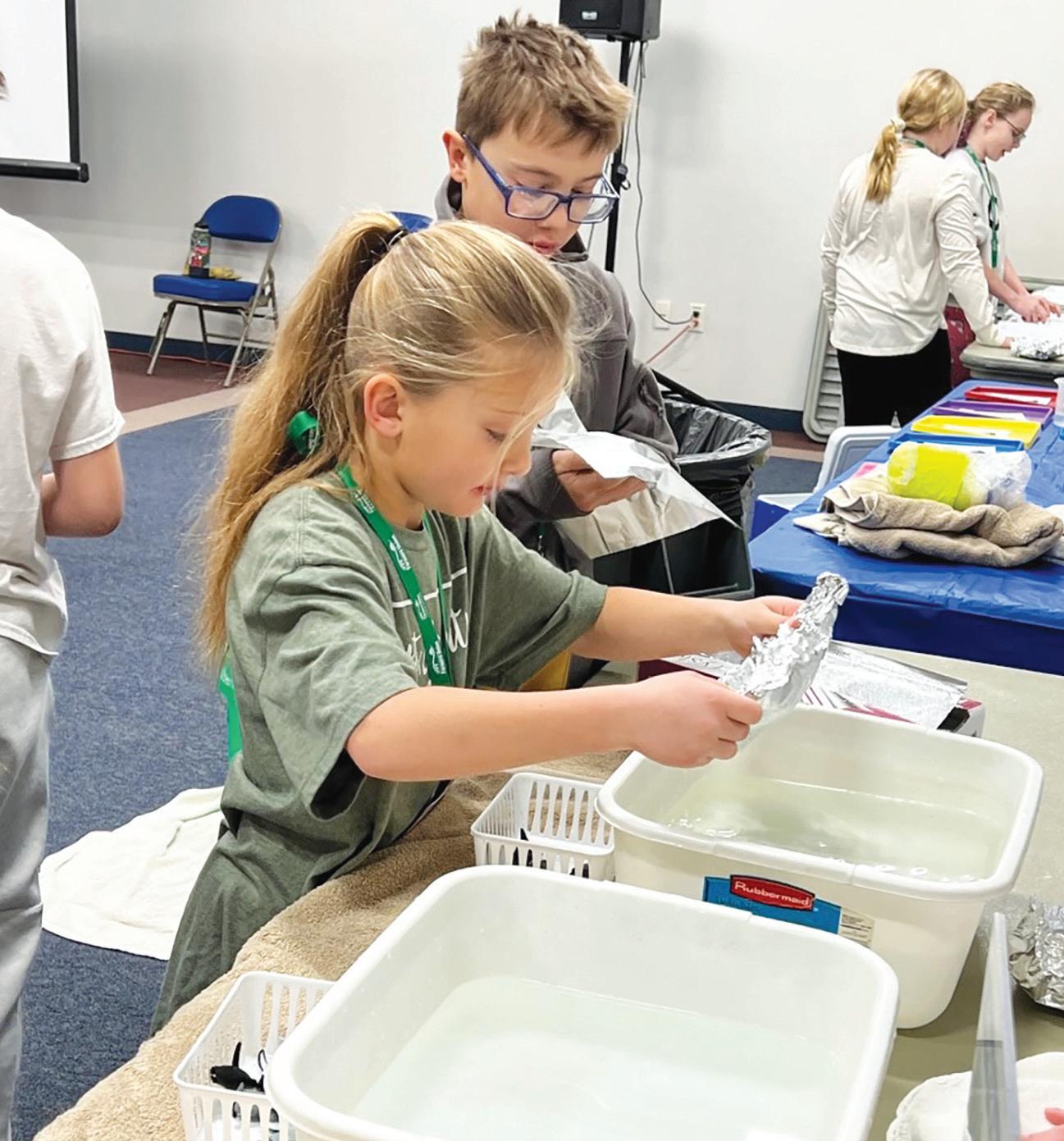
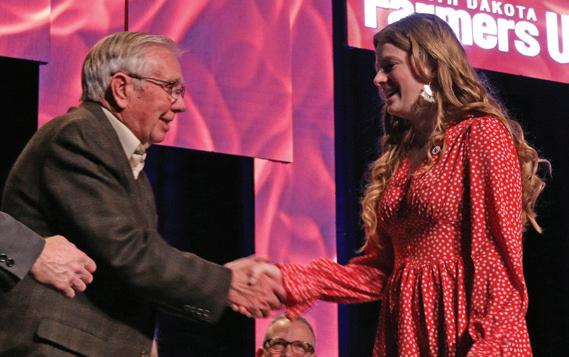
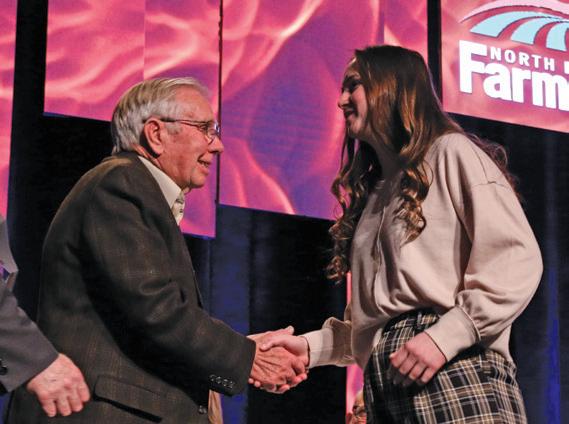
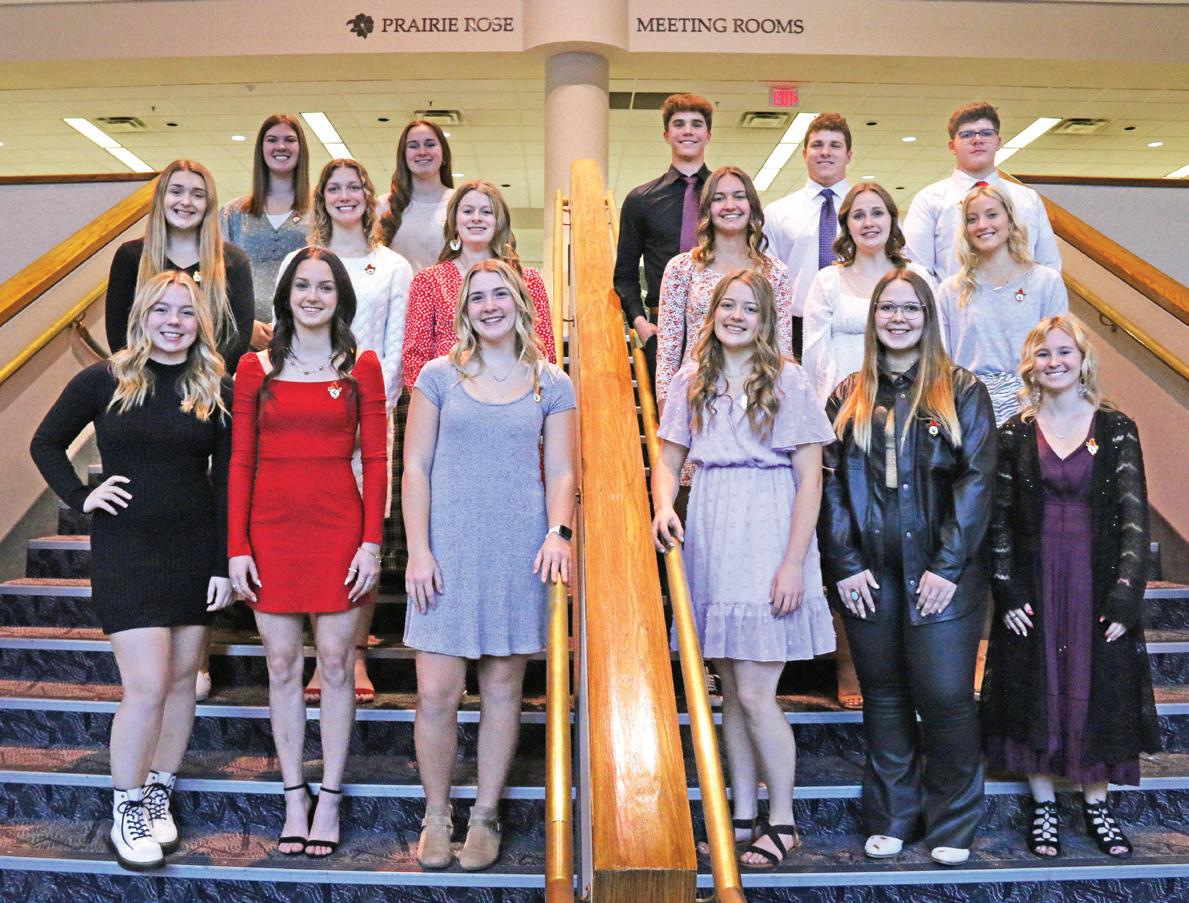

Youth convention a success!
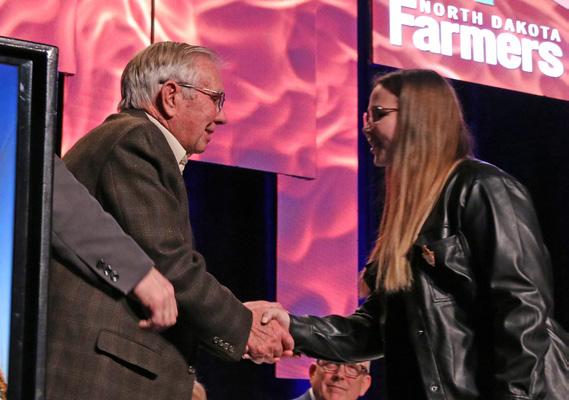 Shelby Knox of Ray, Taylor Rath of Williston and Mary Rude of Tolna are the 2022 recipients of the $1,000 Bergman Scholarship from North Dakota Farmers Union.
Shelby Knox of Ray, Taylor Rath of Williston and Mary Rude of Tolna are the 2022 recipients of the $1,000 Bergman Scholarship from North Dakota Farmers Union.
NDFU.org • January 2023 • 13 96TH ANNUAL STATE CONVENTION • DEC. 9-10 • BISMARCK EVENT CENTER
TOP TO BOTTOM: Former NDFU President Alan Bergman awards scholarships to Taylor Rath of Williston, Mary Rude of Tolna and Shelby Knox of Ray.
THE 2022 TORCHBEARER CLASS
The NDFU Youth Convention featured science experiments with Gateway to Science in Bismarck.
Brian Carroll, director of the Grand Farm near Casselton, talks about using technology to solve problems for producers.
Grand Farm director presents vision
The global population is expected to balloon to 10 billion by 2058, according to a United Nations study.
To feed everyone, technology will be instrumental, said Brian Carroll, director of the Grand Farm near Casselton.
“We have to become much more efficient and productive in order to (feed that many),” Carroll said. “We have the opportunity within our region to make a big impact on that.”
Carroll presented to NDFU members at their annual state convention Dec. 10 at the Bismarck Event Center. The Grand Farm, a technological playground for agribusiness, seeks new ways to make farmers and ranchers more efficient.

Carroll highlighted other agriculture pain points that Grand Farm hopes to solve, one of which was access to capital. He noted that Grand Farm hopes to make it easier for Midwestern agricultural startups to stay in the region by bringing together industry partners, the startup community and universities.
“So what we do is hold events and conferences that are designed for just that — to bring these groups together and network,” he said. “And we listen to the different pain points that come out of it.”
He also spoke about the problem of filling
the state’s more than 30,000 job openings, and how technology will have to play a role.
“We simply don’t have enough to people to do that,” Carroll said. “The skill sets of the future are going to require more technology enablement.”

Emerging Prairie, the company behind Grand Farm, created the Emerging Digital Academy, a job training program. Carroll shared that the average annual salary of a worker coming into the 20-week academy was $24,000.
“Upon graduating and getting their first job, they’re making about $60,000,” he said. “They’re getting trained within that program and finding an industry job in which they can advance their career.”
Carroll cited issues with agricultural safety and changing demographics as problems in which Grand Farm is searching for solutions.
“The windows of operations are becoming much more closed, and we have to find ways to become much more efficient around them,” he said.
Carroll thanked NDFU for its dedication to the Grand Farm Initiative. NDFU President Mark Watne continues to serve on the board.
“Farmers Union is one of the first partners we had,” he said. “It’s important for us as we think about the impact of technology (on producers).”
96TH ANNUAL STATE CONVENTION • DEC. 9-10 • BISMARCK EVENT CENTER
14 • January 2023 • Union Farmer


NDFU group shares farm bill research
After intensive research, meetings with program experts and input from members statewide, NDFU’s Farm Bill Working Group presented the results of their work and a list of farm bill recommendations during a breakout session on Friday, Dec. 9.

The working group was comprised of members from each of the organization’s seven districts: Dave Lundeby (Dist. 1), David Teigen (2), Kevin Johnson (3), Emily Zarak (4), Ryan Petrick (5), Mike Schlosser (6) and Wyatt Sundquist (7).
With a focus on research-based solutions to existing problems in the farm bill, the group identified three priority areas for improvement: 1) Strengthen the farm safety net; 2) Establish and improve permanent disaster programs; and 3) Enact farmerfriendly climate provisions.
STRENGTHEN THE FARM SAFETY NET
PROBLEM: Market and weather volatility makes annual ARC/PLC election difficult.
SOLUTION: Provide a dual enrollment option that grants farmers the higher of calculated ARC and PLC payment rates.
“If you picked the wrong one, 18 months later you get something or nothing,” said Sundquist in reference to payment irregularities. A dual enrollment option would increase the cost of the program by 10%, according to research. “If a producer is choosing wrong, it’s because there are conditions that are unexpected,” said
Perdue.
PROBLEM: Rising input costs are making statutory reference prices obsolete.
SOLUTION: Increase PLC reference prices. Perdue said several commodity groups are saying reference prices are not aligned with current reality. He noted the national average cost of production for most commodities increased 15% in 2022.
PROBLEM: Farmers have to wait an entire marketing year before receiving any farm program support.
SOLUTION: Provide partial advance payments for ARC/PLC.

History exists for advanced partial payments, Perdue said, referencing the 2003 Direct & Counter-cyclical Payment (DCP) program. “We found a structure that works and has worked in the past. Why not look at something like that?”
PROBLEM: Payments to non-farmers and very large farms raise questions of fairness and program integrity.
SOLUTION: Close AGI and Actively Engaged in Farming loopholes.
“The problem seems to be enforcement and there are so many rules to get around it,” said Johnson. With the “actively engaged in farming” requirement to be eligible for farm safety net and conservation programs, Perdue said individuals should have to prove some type of involvement in a family farm.
96TH ANNUAL STATE CONVENTION • DEC. 9-10 • BISMARCK EVENT CENTER
16 • January 2023 • Union Farmer
Members of NDFU’s Farm Bill Working Group shared research results and a priority list of recommendations for the next farm bill. Pictured left to right are Wyatt Sundquist, David Teigen, Dave Lundeby, Ryan Petrick, Kevin Johnson, Mike Schlosser and NDFU Government Relations Director Matt Perdue. Not pictured is Emily Zarak.
ESTABLISH AND IMPROVE PERMANENT DISASTER PROGRAMS
PROBLEM: Farmers have been forced to rely on ad hoc disaster programs for four consecutive years. Ad hoc programs provide uncertain and inconsistent relief.
SOLUTION: Establish a permanent disaster program that supplements crop insurance indemnities when widespread natural disasters occur.
“When you have a regionwide disaster and secretarial declaration, WHIP’s emergency structure should kick in,” said Perdue.
PROBLEM: LFP and LIP do not accurately reflect the value of forage and livestock losses.
SOLUTION: Improve LFP payment calculations. Permanently remove less than 250 lb. category for LIP.

Basing LFP payments on a three-month average of corn prices, rather than a 12-month or two-year corn price, would better protect ranchers, coupled with an increase in the payment cap from five months to eight, according to the working group. For the LIP Program, “If we can strengthen what is there, remove the less than 250-pound weight and increase the payment, we’ll get a little more benefit” out of the program, Petrick said.
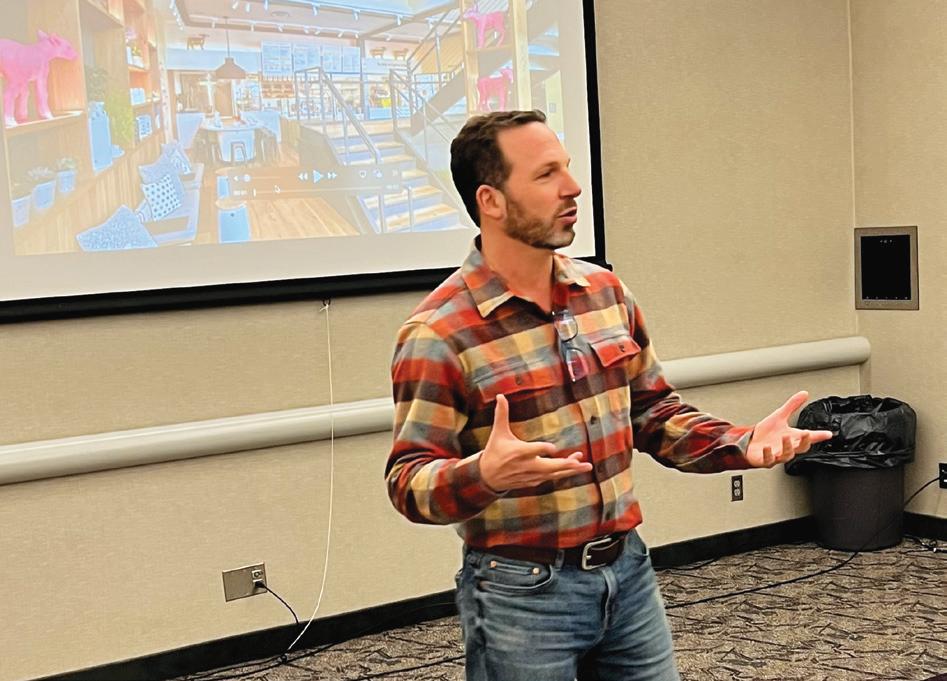
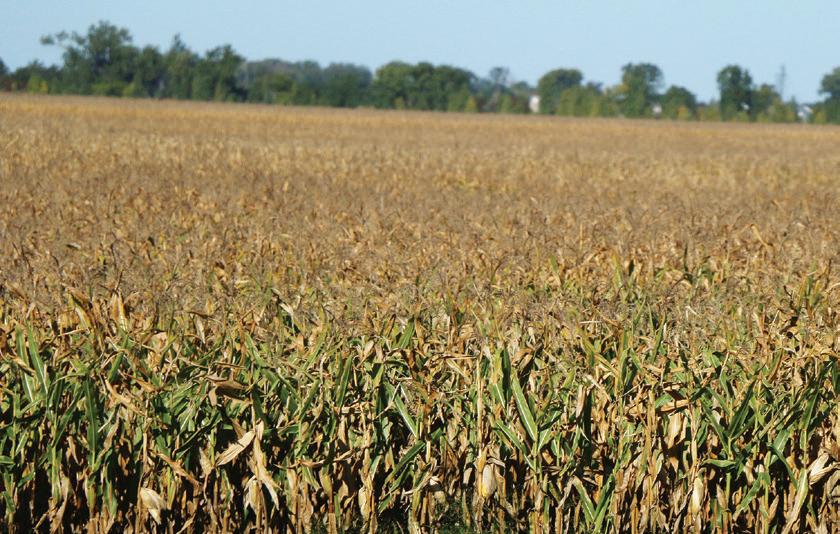
Bee’s Knees, an Old Fashioned, and Farmers pizza dough were on the Shake & Shape menu that Chef Joe Goetze (right) and master distiller Bob VanLancker of Founding Farmers restaurants served up via video for NDFU members on Friday afternoon. Dan Simons, Farmers Restaurant Group manager, introduced the breakout session, which took members through the step-by-step process of replicating restaurant-style pizza dough and cocktails made from Founding Farmers Spirits. He said members have 1,400 people working on their behalf in the group’s seven restaurants.

ENACT FARMER-FRIENDLY CLIMATE PROVISIONS
RECOMMENDATIONS: Make programs voluntary, not mandatory. Provide sufficient funding to meet program demand. Increase payments for conservation practices that deliver the greatest environmental benefits. Research costs and benefits of climate-smart agriculture practices.
Perdue said a lot of conservation programs are heavily oversubscribed and underfunded. About one-third of applications are awarded EQIP funds nationally and North Dakota ranks 48th in the nation for funded CSP contracts. “Programs don’t have the funding they need to provide support,” he said.

96TH ANNUAL STATE CONVENTION • DEC. 9-10 • BISMARCK EVENT CENTER
GET THE LATEST FROM NDFU NDFU.org/emailsignup
BREAKOUTS
ADDITIONAL
NDFU.org • January 2023 • 17
National Farmers Union President Rob Larew hosted a breakout on the organization’s successful Fairness for Farmers campaign that continues its work for farmers and ranchers.
With canola approved, it’s on to E15
With renewable diesel being the hot topic among renewable fuels as of late, it’s no surprise that canola being approved as a feedstock is being celebrated.

Anne Steckel of National Farmers Union presented the latest in her work with members of Congress on the topic in a breakout at the NDFU state convention Dec. 9 at the Bismarck Event Center. She said with the ruling, canola growers will benefit from increased demand. Renewable diesel is purely made from feedstocks such as soybean oil and is different than biodiesel, which like ethanol is still a petroleum-based blend.
“We’re excited we’ve got that done so we can focus on other things,” Steckel said.
Steckel said getting the EPA to approve year-round E15 is next on the agenda, and that NFU has recently partnered with the American Petroleum Institute, which is the national trade association for the oil and gas industry.
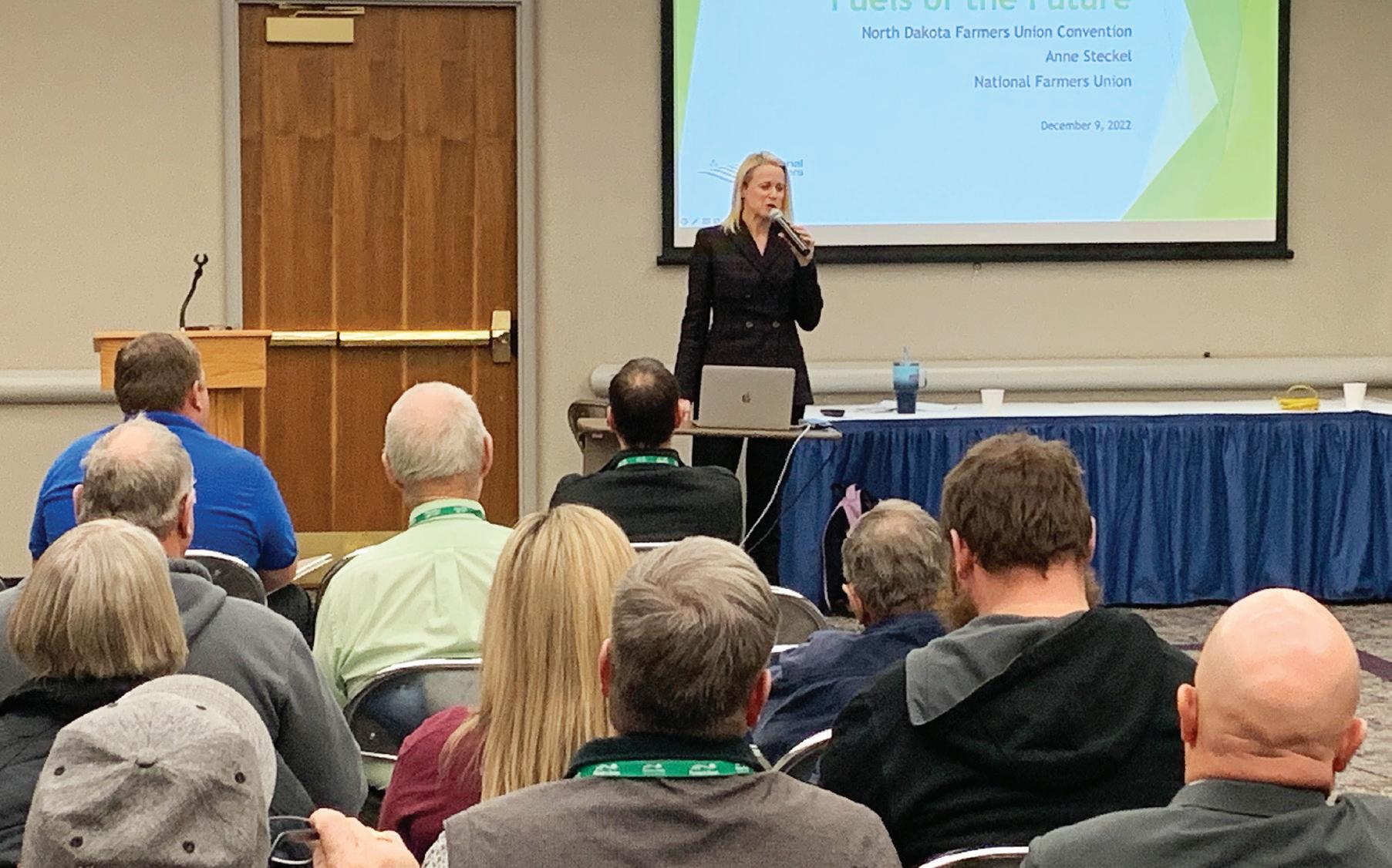
“They’re joining us because they don’t want a patchwork system,” she said. “It makes it very difficult from a base fuel perspective. They’re going to support year-round use of E15. We hope this effort can be addressed legislatively. We’ve got bills introduced in both the House and Senate. We’re hoping we can get this done.”
Charles Mueller of ADM also addressed
members during the breakout, updating the status of their soybean crushing plant in Spiritwood. The $350 million project, called Green Bison Soy Processing, is a partnership with Marathon, which will use the soybean oil for their repurposed renewable diesel plant near Dickinson.
Mueller said they believe the plant will be open by harvest of next year and that they’ll likely need 53 million bushels of soybeans from the state’s producers. With North Dakota Soybean Processors also building a soybean crushing plant in Casselton, the two plants would eat up roughly half of North Dakota’s current soybean crop, Mueller said.
“It’s exciting to see that there are valueadded markets for these beans, instead of shipping it out to the (Pacific Northwest ports),” he said.
Mueller added that the facility will have a system in which farmers will get in and out with their beans.
“We’re looking to account for 40 trucks per hour,” he said. “One of our biggest focuses is lowering wait times. (Producers) will have the option of scheduling in advance so they can dictate their schedule and not wait in lines. We’ll consider it a failure if you wait more than 20 minutes.”
National Farmers Union senior policy advisor Anne Steckel leads a breakout on renewable fuel developments at the NDFU state convention Dec. 10 at the Bismarck Event Center.
96TH ANNUAL STATE CONVENTION • DEC. 9-10 • BISMARCK EVENT CENTER 18 • January 2023 • Union Farmer
What’s a wetland? SCOTUS not sure
What is a wetland? Seems like an easy question for most. But producers know it’s far from it, with enough confusion to the point that the Supreme Court of the United States needed to define it.
cattails. That’s often not what we’re fighting about with these agencies. It’s about the saturation areas where they hold water in that first 12 inches of soil for only two weeks out of the growing season.”
VAN BRUGGEN
Still, disagreement remains, and Kale Van Bruggen – a water rights lawyer for Rinke Noonan Law Firm — was on hand to discuss the topic in a breakout at the 96th annual NDFU state convention in Bismarck.
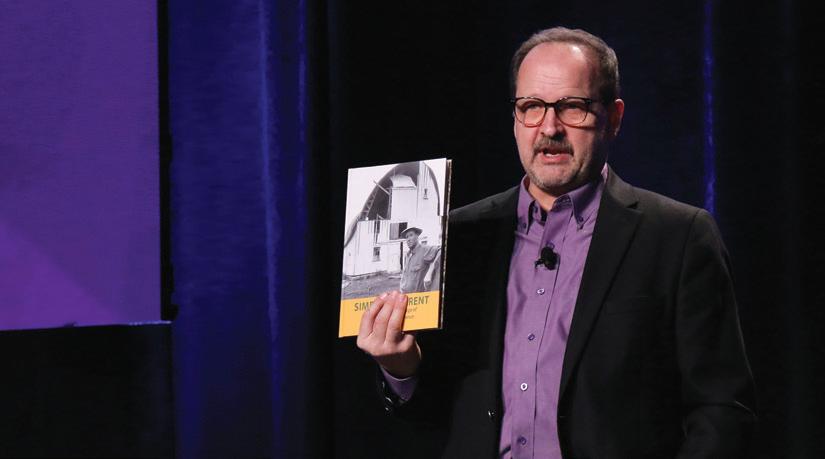
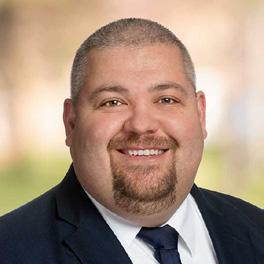
Van Bruggen said a wetland needs to generally meet three criteria, the first of which is it has to have hydric soil, or soils formed under the conditions of saturation. It also needs to have inundation, he said, and that’s where some confusion comes in, as it’s more than just standing water.
“Wetlands can be saturation, too,” he said. “You’re not seeing water ponding at the top, but you’re seeing water held within the first 12 inches of the topsoil.
“When I go to the (Twin) Cities and I talk to folks about helping farmers out who have gotten in trouble for draining wetlands, they think about those 2-foot deep areas with
Van Bruggen said the final criterion is if the wetland — were it not being farmed — would support water-loving plants.
Van Bruggen also covered the restrictions for the U.S. Fish and Wildlife Service and its permanent restrictions. He said he often helps farmers against easements granted prior to 1976, when they weren’t mapped.
“Those are the ones that drive the questions and the litigation,” he said.
Van Bruggen said a case is currently before SCOTUS that could affect the “significant nexus” ruling, and said it was hard to tell on which side each of the justices could fall.
“There could be three separate groups of justices with differing opinions,” he said.
Matt Retka with Stantec also presented during the breakout, educating members on the North Dakota Agricultural Mitigation Bank, which would allow producers the option of draining a wetland in exchange for creating another one in a different location.
FUI marketing a key ingredient in success
A behind-the-scenes look at how the Farmers Union Insurance brand has been built was shared Saturday morning, Dec. 10, by Chief Executive Officer Mark Anderson and Chief Sales, Marketing and Brand Officer Kevin Ressler.
“We always want to be top of mind to the consumer,” said Ressler. And because there can only be one low price leader, FUI’s marketing effort is focused on creating an emotional attachment with the consumer. “We don’t talk about price in our advertising. That’s not our main driver.”
Part of that emotional attachment starts with culture, the mission of both North Dakota Farmers Union and FUI, and their shared history. “We try to intermingle the missions of the organizations,” noted Anderson.
Messaging for the company is delivered in an “ultra local way” in the communities where agents serve. That has many different looks, including sponsorship of facilities, high school and collegiate sports, donations and

community engagement events.
Donations and agent involvement in their communities are a huge component of the brand’s success, Anderson said. Ten percent of the company’s profits annually go toward donations.
“We make a difference in people’s lives. That’s what we do,” emphasized Ressler. “That’s how we differentiate ourselves.”
96TH ANNUAL STATE CONVENTION • DEC. 9-10 • BISMARCK EVENT CENTER
NDFU.org • January 2023 • 19
Kevin Ressler, chief sales, marketing and brand officer for Farmers Union Insurance, discusses the new FUI history book.
SNAPSHOTS FROM CONVENTION
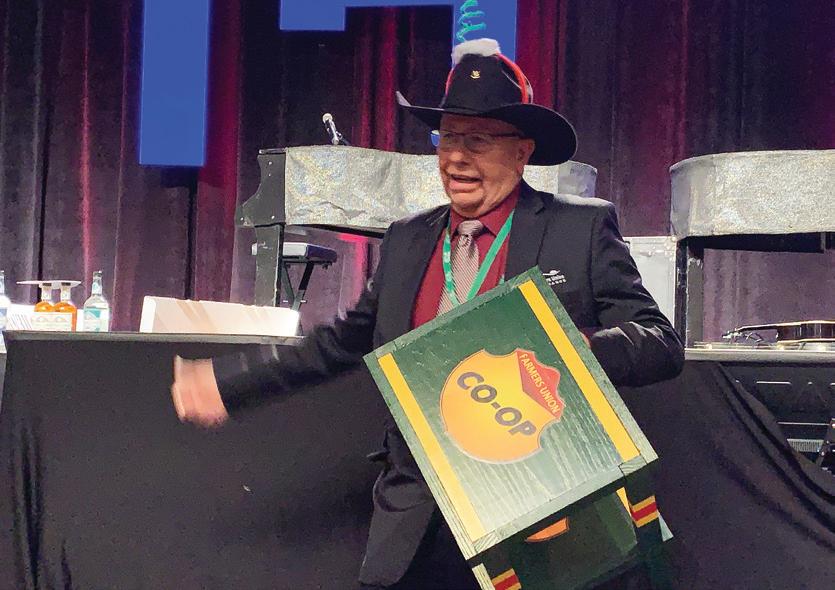


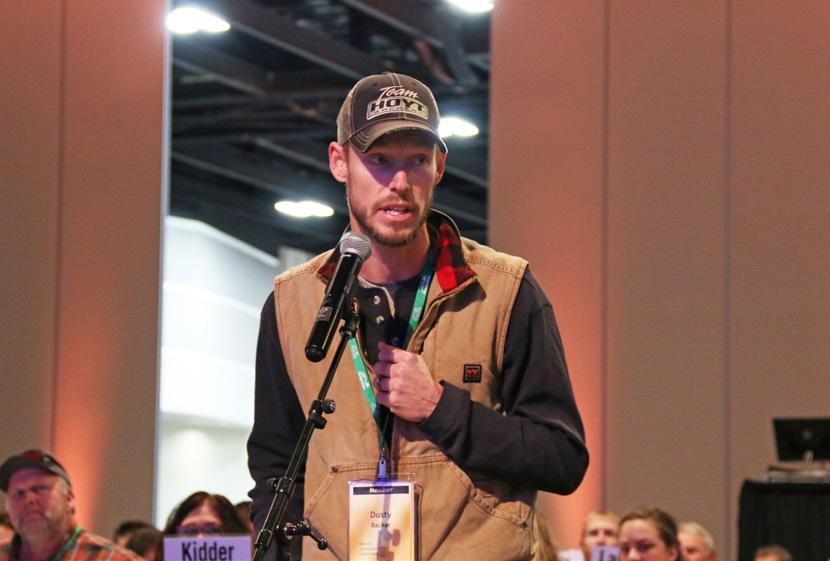



96TH ANNUAL STATE CONVENTION • DEC. 9-10 • BISMARCK EVENT CENTER
Shelly Ziesch of Pettibone leads the District 6 caucus. Ziesch won reelection.
NDFU Vice President Bob Kuylen of South Heart and Lenci Sickler of Gladstone direct the Policy and Action debate.
Dusty Backer of Center gives a point of information during a policy debate.
Christopher Lundeby of Langdon talks policy on Friday afternoon.
Wes Niederman of Elgin helps with the live auction on Friday night.
20 • January 2023 • Union Farmer
Jon Iverson of Langdon checks out a bid sheet on one of the silent auction tables.

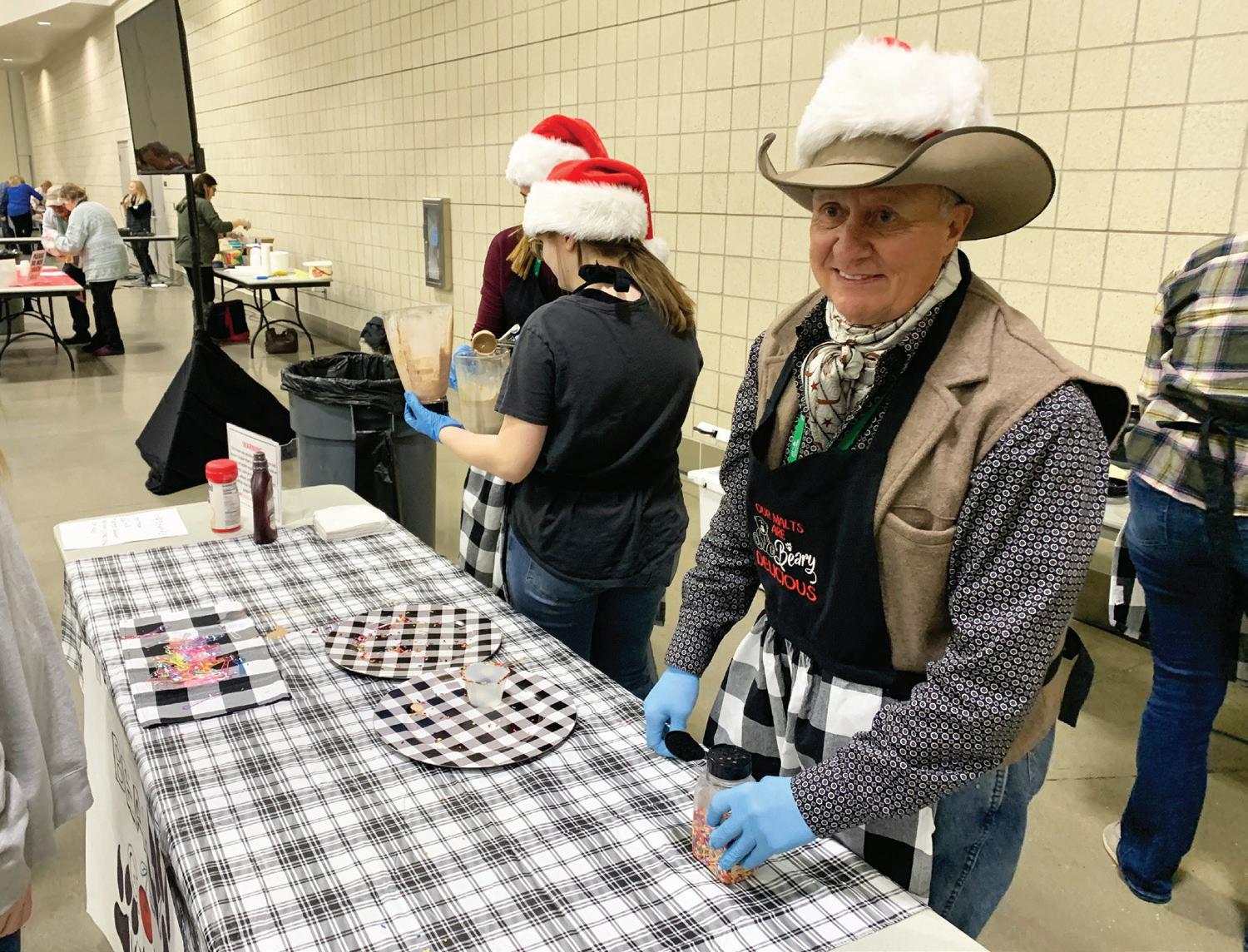
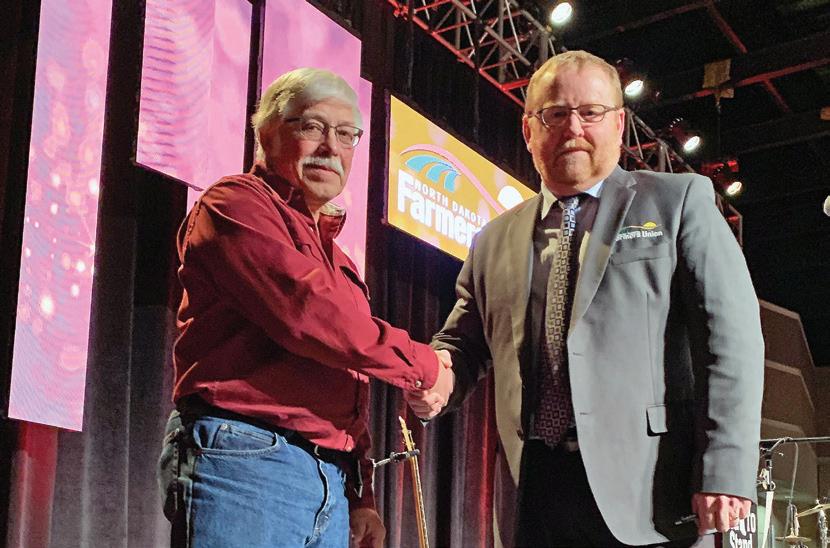


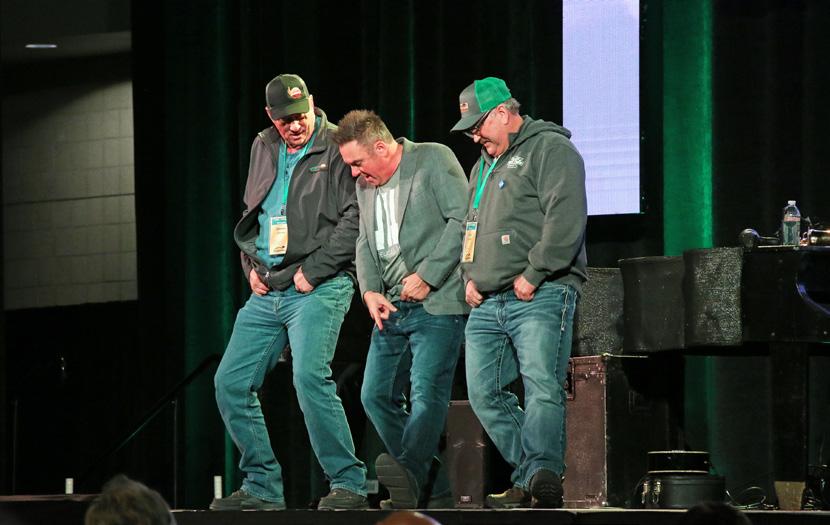
96TH ANNUAL STATE CONVENTION • DEC. 9-10 • BISMARCK EVENT CENTER
Dave Berger of Center and his ‘Berry Delicious’ team won the malt competition, which raised $2,000 for the youth program!
Darell Wall of Forbes won a zero-turn mower Saturday night. Other winners included Ozzie Skogen (MacBook laptop), Sarah Axt (Apple iPad) and Tara Carlson (Case kids tractor-trailer).
The Grinch made a special appearance during a Farmers Union Insurance presentation.
Dueces Wild Dueling Pianos played for the convention on Friday night.
NDFU.org • January 2023 • 21
Steven Overlee of McGregor, left, and Doug Cvancara of Wildrose, right, dance with Deuces Wild Dueling Pianos on stage.
POLICY HOPPER
FROM NORTH DAKOTA FARMERS UNION
NDFU sets agenda for session
On Dec. 5, North Dakota State University unveiled the inaugural study on the economic contributions of agriculture in North Dakota. The results of the study show that agriculture contributes nearly $30.8 billion and more than 110,000 jobs to the state’s economy. While the findings underscore agriculture’s current importance to the state, they also establish a baseline from which growth is a virtual certainty.
The same day the economic contribution study was released, Epitome Energy announced plans to build a new 42-millionbushel soybean processing facility in Grand Forks. That and two other projects will bring the state’s total capacity from zero to nearly 140 million bushels in a few short years. That processing expansion will support further developments up and down agriculture supply chains. As we look ahead to the 2023 legislative session, NDFU is working hard on proposals to promote that growth. By making smart investments in agricultural research, value-added projects, and rural infrastructure, the legislature can maximize new opportunities for family farmers and ranchers.
AGRICULTURAL RESEARCH
North Dakota State University’s agricultural research and extension is critical to farmers’ and ranchers’ success in North Dakota. NDSU has a long tradition of providing farmers with new seed varieties adapted to North Dakota’s climate, fertility recommendations to maximize efficiencies, and improved weed and plant disease responses. Unfortunately, much of that work is currently being conducted in overcrowded and outdated facilities.
The progress of North Dakota agriculture depends on modern field facilities that promote, not inhibit, cutting edge research. That is why NDFU strongly supports full funding for a new field lab facility at the Agricultural Experiment Station. This project is sure to deliver a significant return on

investment and promote the success of future generations of family farmers.
VALUE-ADDED AGRICULTURE
The new soybean crushing capacity in North Dakota will create a surplus of animal feed. The local availability of feed, in turn, will create new opportunities for family farmers and ranchers to produce livestock. Over the last several months, NDFU has worked with our partners to develop a comprehensive plan to support livestock development. A key plank of the plan is to provide better information and stronger frameworks to support locally led discussions. Livestock production is a key economic development opportunity for communities who choose to pursue it. We believe objective, up-to-date information will promote those conversations.
The second plank of our plan is to unlock financial incentives for livestock producers. During the 2021 legislative session, NDFU advocated for the establishment of the Agriculture Diversification and Development Fund (ADD Fund). That fund can provide grants and interest buydowns to support establishment and expansion of livestock facilities. The ADD Fund is also a powerful tool for supporting other value-added developments. In the program’s first 18 months of existence, it has supported expansion of meat processing, ethanol production, wheat pulping, pea processing, and more. We continue to urge legislators to replenish the fund, so it can continue to support value-added opportunities of all types.
INFRASTRUCTURE
Our state’s economy depends on a strong network of rural roads and bridges. While the legislature made historic investments in county and township infrastructure during the 2021 legislative session and special session, there is much more work to do. In fact, the state’s rural infrastructure needs are
22 • January 2023 • Union Farmer
LEGISLATIVE DRIVE-IN
Feb. 8-9, 2023 • Bismarck

NDFU is hosting a training on how to connect with legislators through telling their stories. That evening, NDFU is hosting a social with legislators to allow members an opportunity to visit with their elected officials over a meal. The next day, NDFU members will take an NDFU bus to the capitol. They will have an opportunity to sit in on hearings, visit with elected officials and take in a floor session.
growing. The Upper Great Plains Transportation Institute, estimates the state’s county, township and tribal roads and bridges require $10.5 billion of investment over the next 20 years. The solution to the state’s rural infrastructure challenges includes tweaking existing frameworks, like the Operation Prairie Dog formula and the flow of revenues to the Highway Distribution Fund. Those changes will offer important progress, but even more investment is needed. The General Fund surplus of roughly $1.3 billion and Legacy Fund earnings of almost $500 million provide ample
funding for investments in rural infrastructure.
CONCLUSION
Of course, the list of issues NDFU is working on is much longer than what can be summarized in a couple pages. We continue to have discussions on everything from fertilizer production to the state’s childcare crisis to debates over property tax and income tax relief. As those and other issues evolve, we will work hard to ensure family farmers and ranchers stay top of mind for the 68th Legislative Assembly.
NDFU.org • January 2023 • 23
membership.ndfu.org
Register at
All NDFU members are invited
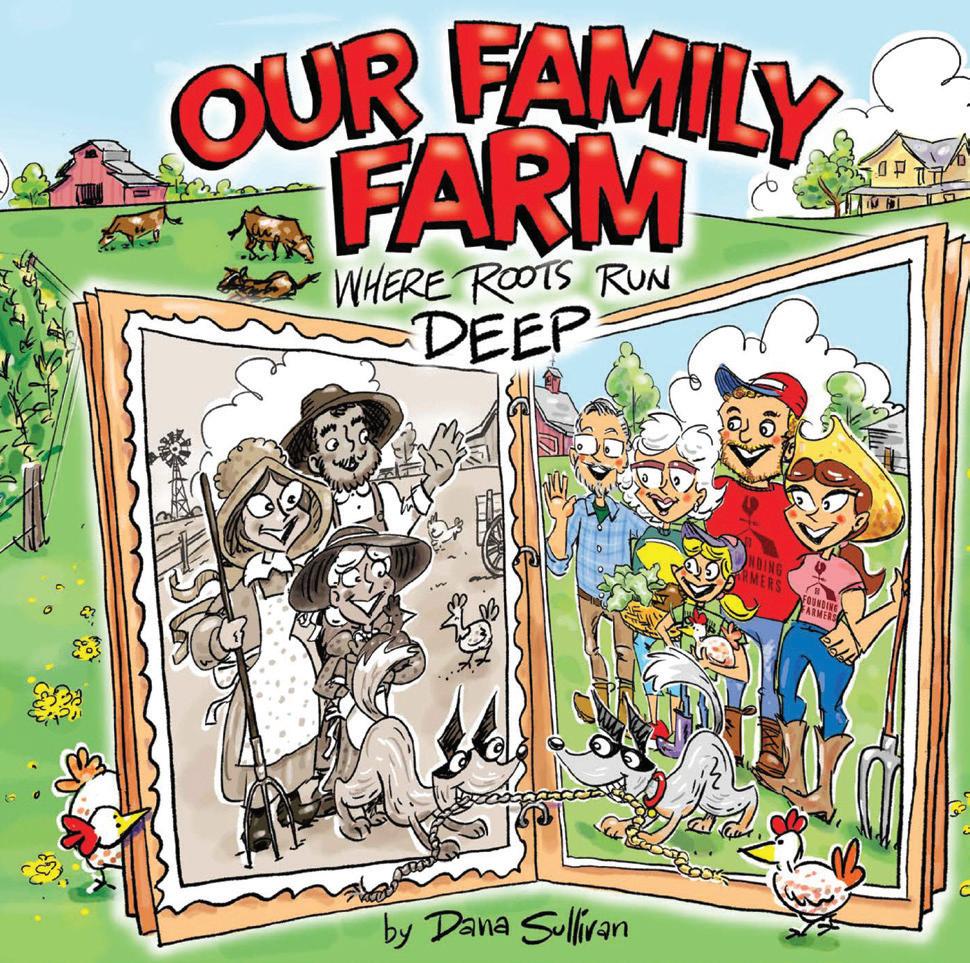
24 • August 2022 • Union Farmer 26 • August 2022 • Union Farmer 12 • March 2022 • Union Farmer June 2022 • Union Farmer Dusty learns about generations of family and equipment on their farm, and the latest in soil technology. Find out how Dusty makes Gramps a new thingamajig for his tractor to save the day! Our Famil Book Series the Fourth children’s book from North Dakota Farmers Union $16.95 plus tax

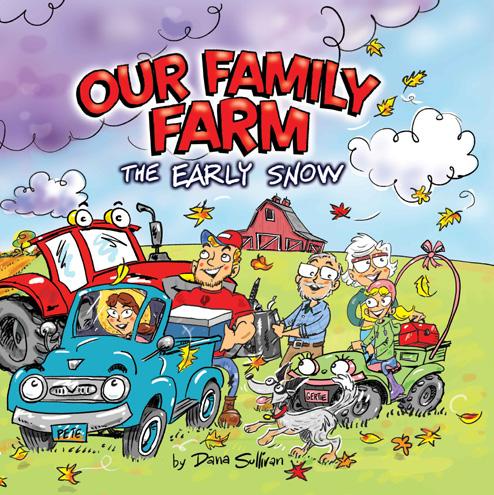
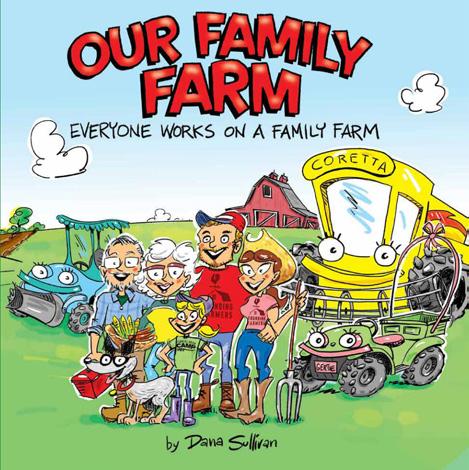

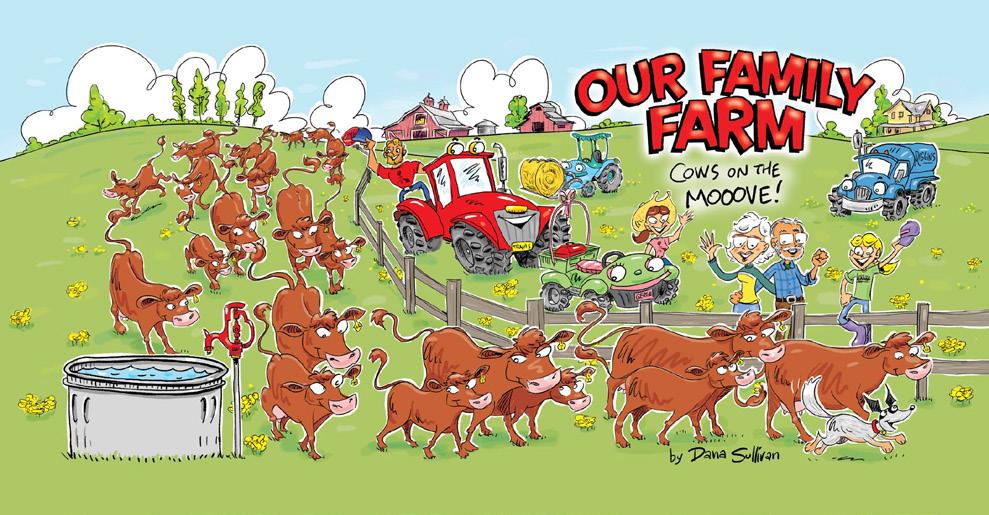
NDFU.org • August 2022 • 25 NDFU.org • August 2022 • 27 NDFU.org • March 2022 • 13 NDFU.org • June 2022 • 13 Family Farm Series GET 4 BOOKS FOR $55 + tax NOTE: only ONE “Where Roots Run Deep” book is included in $55 deal Sullivan Our Family Farm Cows on the Mooove! NDFU visit ndfu.org to purchase your books online or call the state office at 1-800-366-6338
WHAT’S NEW IN CROP INSURANCE?
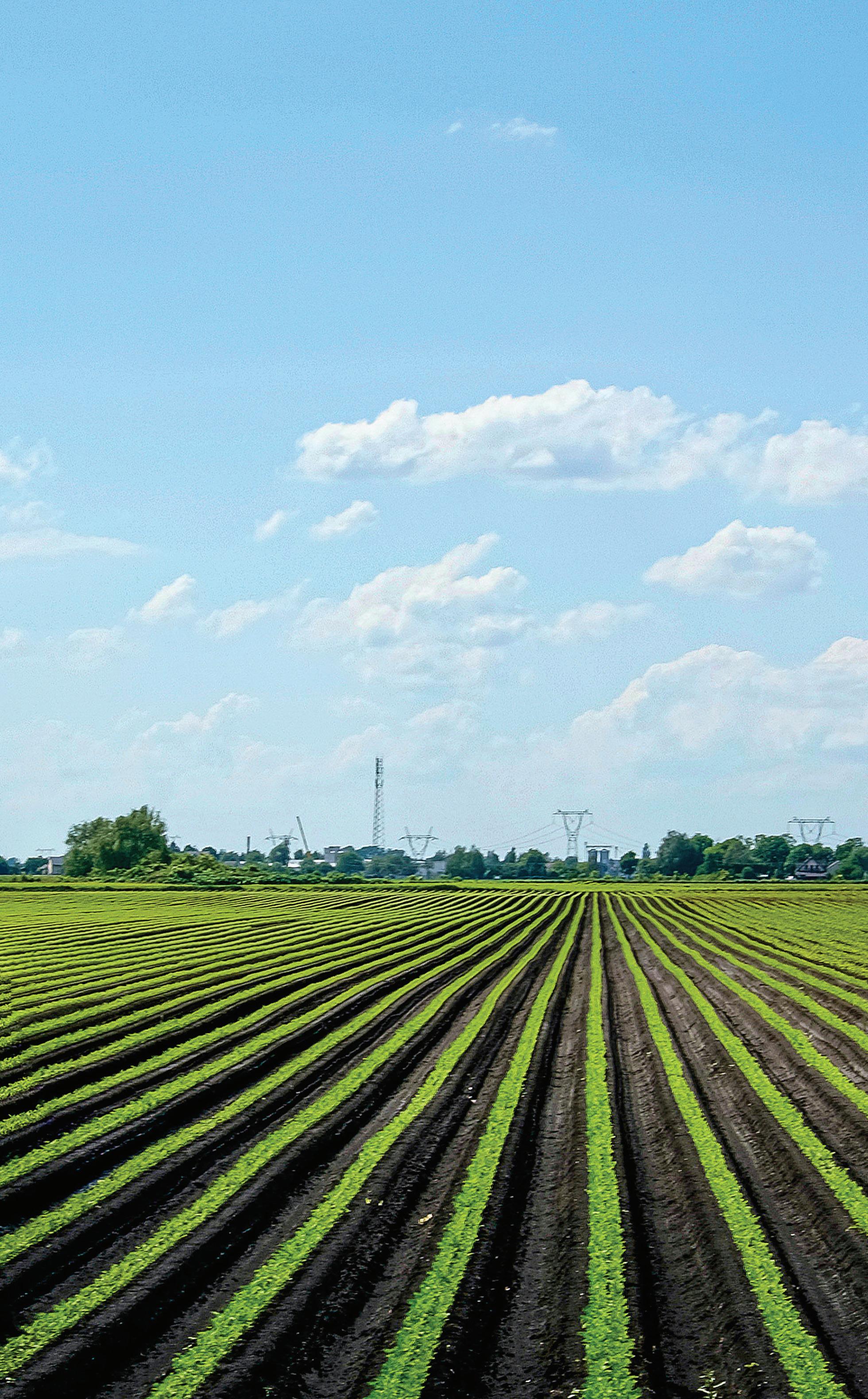
Every year, there seems to be something new to look for in the crop insurance world. Coverage changes, improvements, restrictions, endorsements, commodity price fluctuations and rates are part of the new normal. There is a lot to keep up on, but the trend is toward improvements and increased flexibility to help producers more precisely handle their risk management needs. This article provides a few of those changes for the upcoming crop year.
MULTI-PERIL CROP INSURANCE
Oats: Yield Protection (YP) and Revenue Protection (RP) plans are now available for 2023. Enterprise Units are also an option on oats now.
Rye: Has the same new changes in 2024 as oats. This is a fall crop, so it is important to pick out a coverage plan and unit structure before Sept. 30, 2023, for the 2024 crop year.
Sugar Beets: Incorporates stage guarantees and Stage Removal Option. The new options
Dennie Stratton Crop Insurance Production Manager Farmers Union Insurance

give farmers the opportunity to include stage guarantees in their policy if they prefer lower coverage for a reduced premium or incorporate a stage guarantee removal option in their policy if they wish to maintain or increase their coverage from last year.
Relay Cropping: According to RMA, relay cropping is “a cropping practice where a second planted crop is planted into an established crop where the crops are planted in a manner that allows separate agronomic maintenance and harvest of the crops. With
26 • January 2023 • Union Farmer
this practice, the first crop is harvested above and before the relay crop to avoid damage. Then, the relay crop is harvested later during its normal harvest period.” It is important to remember with this practice that damage due to planting, harvesting or general maintenance of either crop will not result in a covered loss. The program will primarily be used for soybeans planted into small grains. However, in North Dakota, it will take three years of records to prove it for a written agreement to be approved and coverage attached.
WHOLE FARM REVENUE PROTECTION AND MICRO FARM
Whole Farm Revenue Protection (WFRP) was introduced in 2015. It was designed as a way to insure all crops in an operation under one risk management plan and guarantees revenue based on past years and/or upcoming projections. It has been useful for diversified producers and/or those growing specialty crops and livestock not typically insured in the standard multi-peril or livestock policy.
Micro Farm was introduced in the 2022 crop year through WFRP. It is a much easier and simplified version and was designed for small producers who may have had trouble finding affordable coverage. It has been useful for those who sell locally like participating in more direct sales like farmers markets. Like WFRP, it is a revenue-based product that helps guarantee loss in income.
Both of these programs follow a lot of the same rules and regulations as Micro Farm was created as an extension of the WFRP program. Policies can cover anything from industrial hemp, to specialty livestock filling a need for affordable, subsidized insurance for those who were without before.
IMPROVEMENTS FOR 2023
• Micro Farm will increase from $100,000 of maximum approved revenue to $350,000 in the first year and $400,000 continuing policies. This flexibility should create more access for local food producers who previously couldn’t qualify.
• WFRP will increase the maximum insurable revenue from $8.5 million to $17 million.
• More flexible yield reporting requirements at Sales Closing Date to reduce paperwork and record keeping.

• Existing expense reporting for crops unable to plant due to insurable causes of loss will be replaced with 40% reduction in expected revenue for claims purposes, which reflects a somewhat similar value to Prevent Plant in the MPCI program.
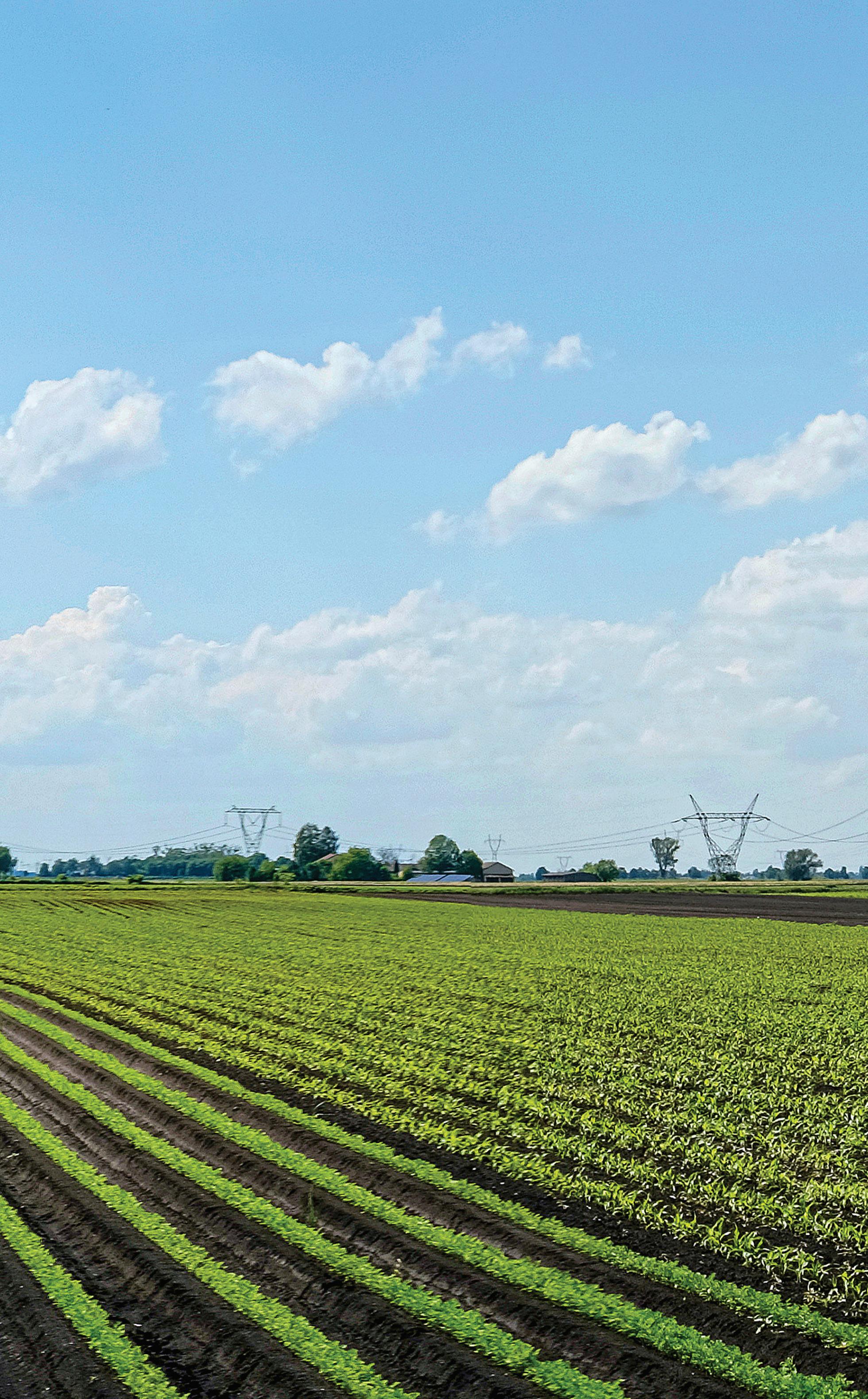
This article is for informational purposes only. The information is not all-inclusive and is intended as general guidelines. For additional information, please refer to the Risk Management Agency website, Crop Insurance Handbook, General Standards Handbook, Loss Adjustment Manual, or your local crop insurance agent.
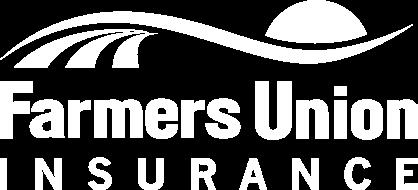
Want to learn more?
Union Insurance and NDFU are hosting a free crop insurance webinar for producers to learn more and ask questions.
a.m.
to cropinsurance.eventbrite.com to register!
Farmers
Tuesday, Jan. 24 • 9
Go
2022 County convention season!

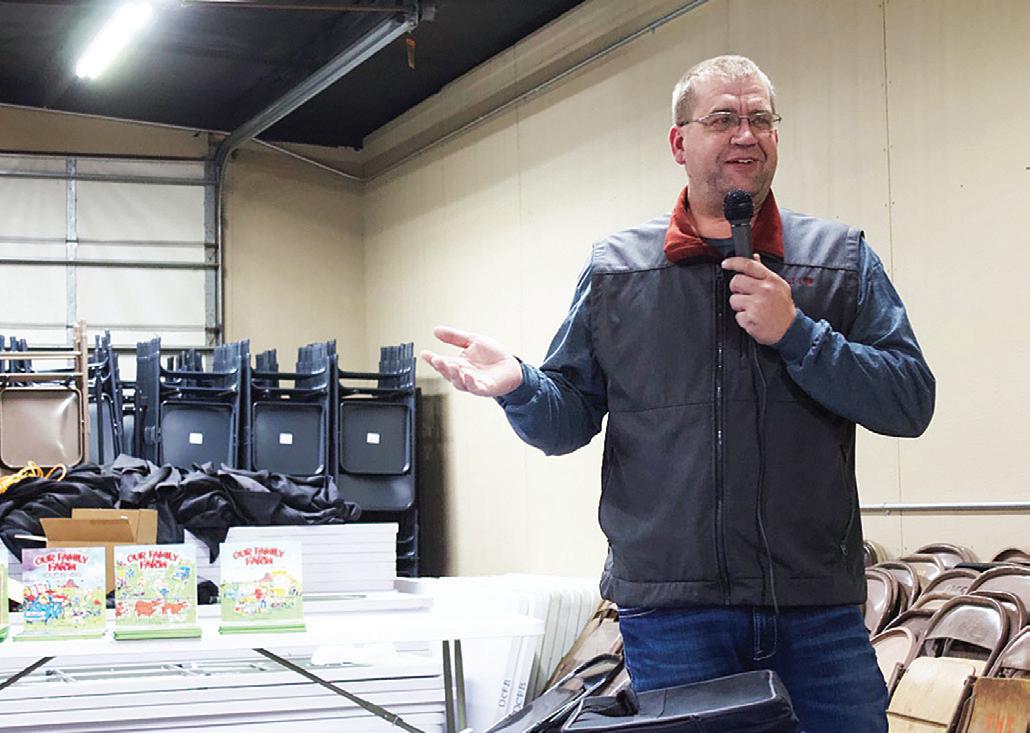
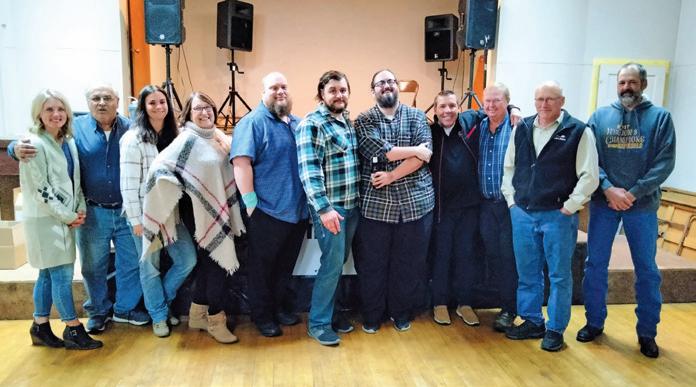
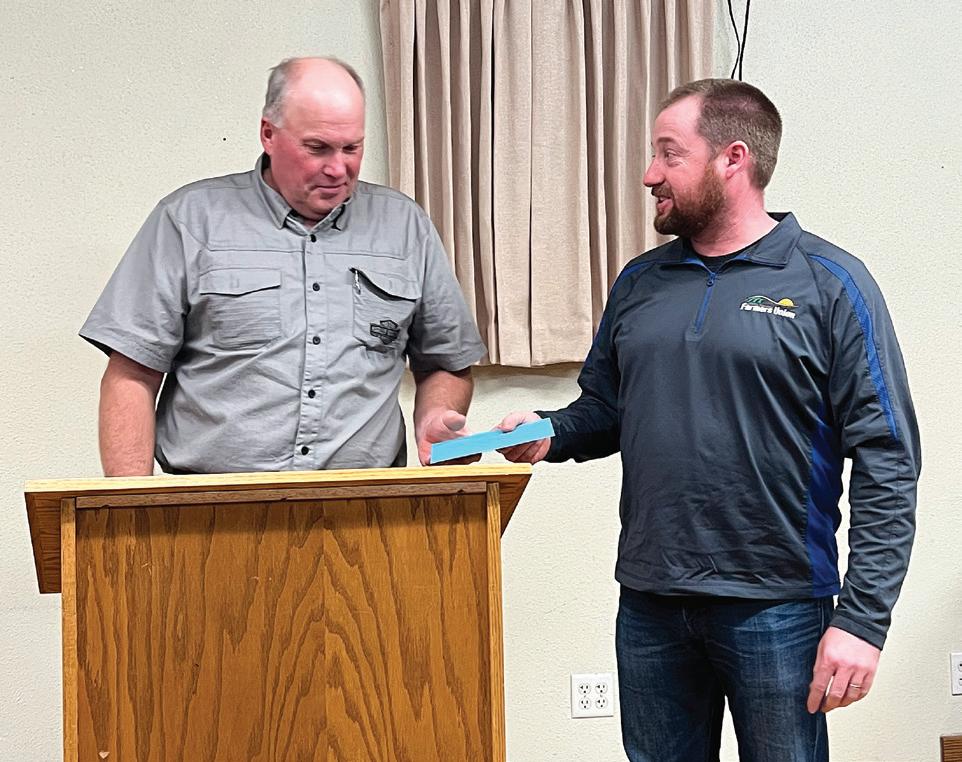
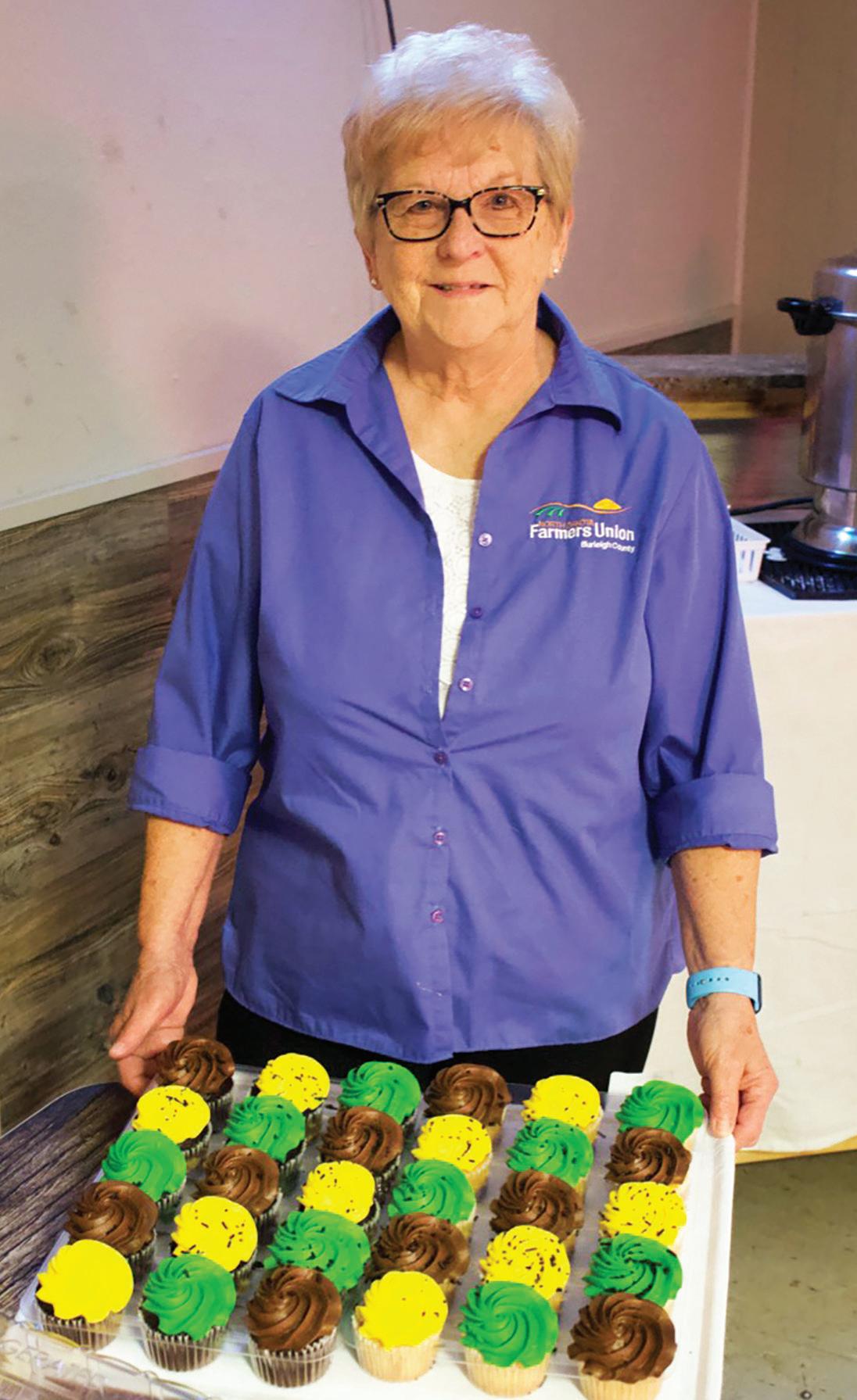
 After 45 year of being involved, Arlene Olson retired from the Burleigh County Farmers Union board at their convention at the Tumbleweed Bar and Grill in Lincoln. They celebrated her with special cupcakes.
R Jay Paul, left, retired as Pierce County Farmers Union president, after serving many years on the board, during the PCFU county convention in Rugby. At right is new president Dave Teigen.
Logan County Farmers Union hosted 40 Below and its comedy show for its annual meeting at the Downtowner in Napoleon.
Jeff Kipley, vice president of National Farmers Union, paid Dickey County a visit during its annual meeting at the Dickey County Fairgrounds.
After 45 year of being involved, Arlene Olson retired from the Burleigh County Farmers Union board at their convention at the Tumbleweed Bar and Grill in Lincoln. They celebrated her with special cupcakes.
R Jay Paul, left, retired as Pierce County Farmers Union president, after serving many years on the board, during the PCFU county convention in Rugby. At right is new president Dave Teigen.
Logan County Farmers Union hosted 40 Below and its comedy show for its annual meeting at the Downtowner in Napoleon.
Jeff Kipley, vice president of National Farmers Union, paid Dickey County a visit during its annual meeting at the Dickey County Fairgrounds.
28 • January 2023 • Union Farmer
Eric Crimmins won an RTIC cooler while attending the Sheridan County Farmers Union convention in McClusky.

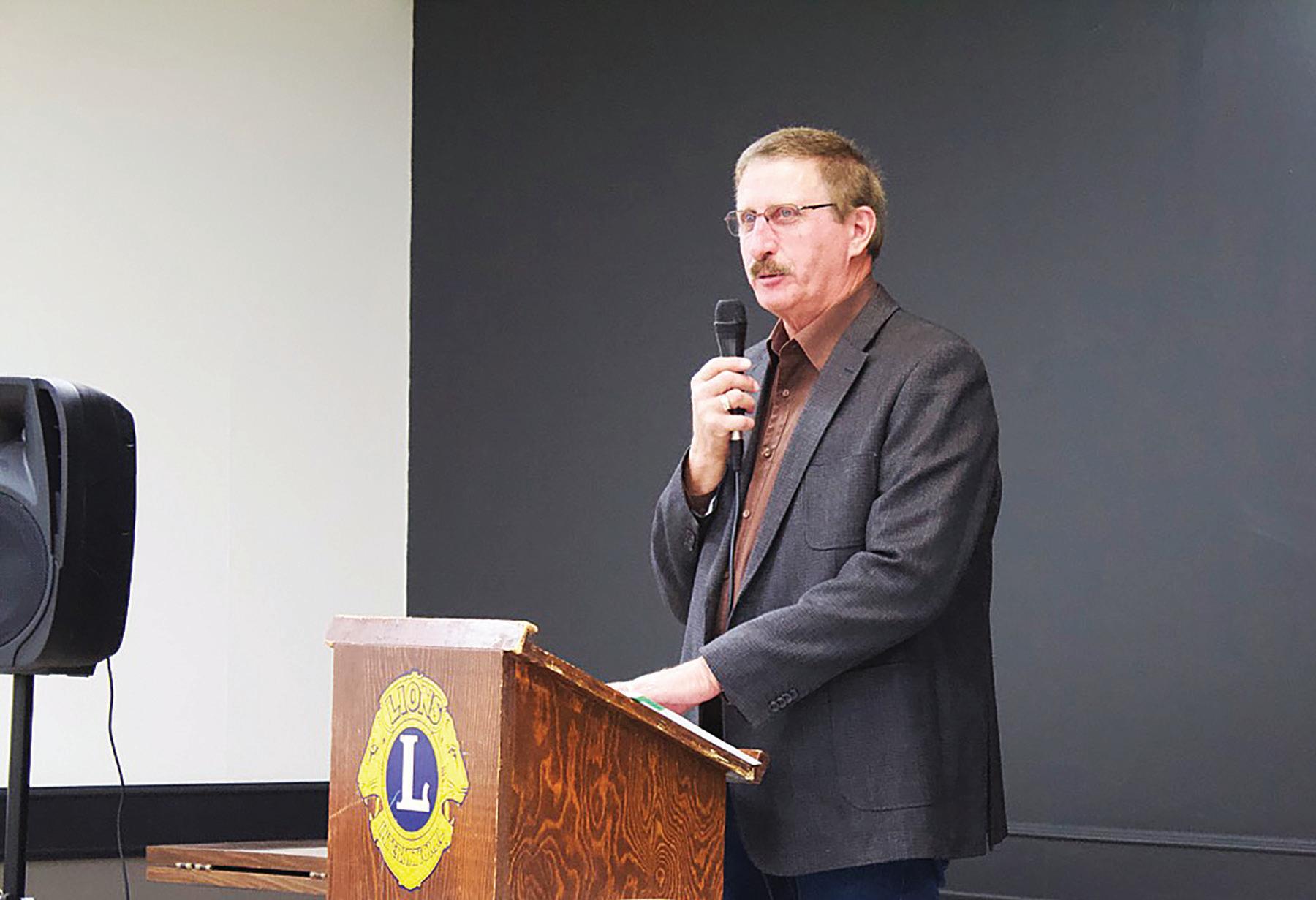
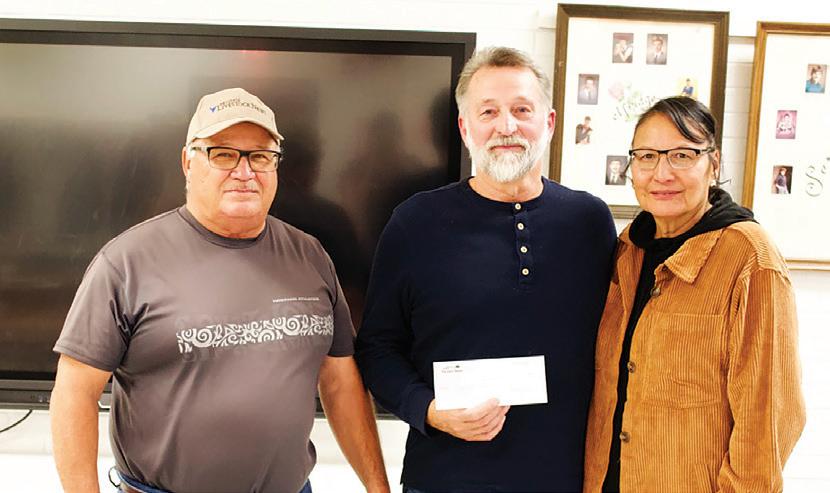
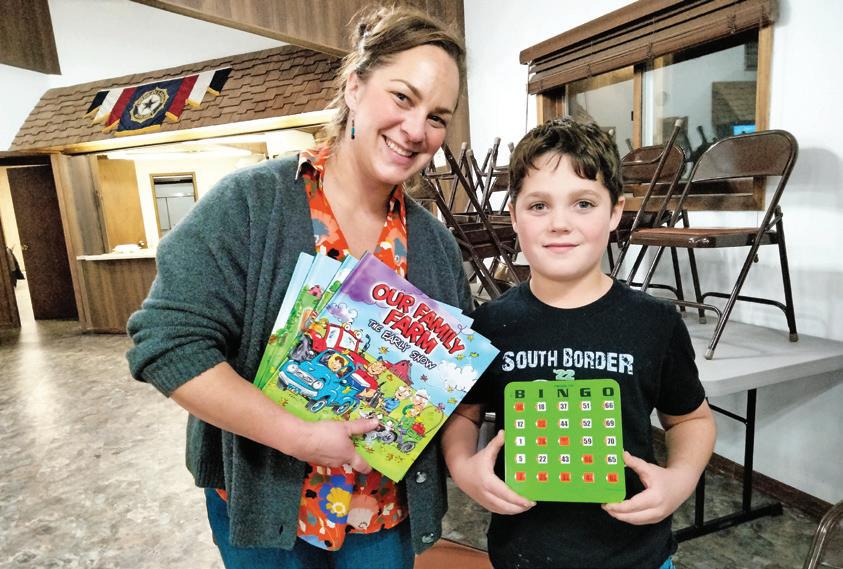
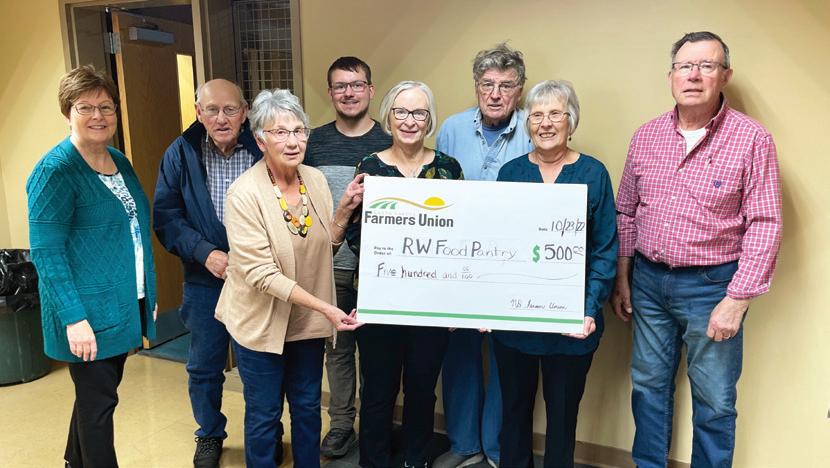
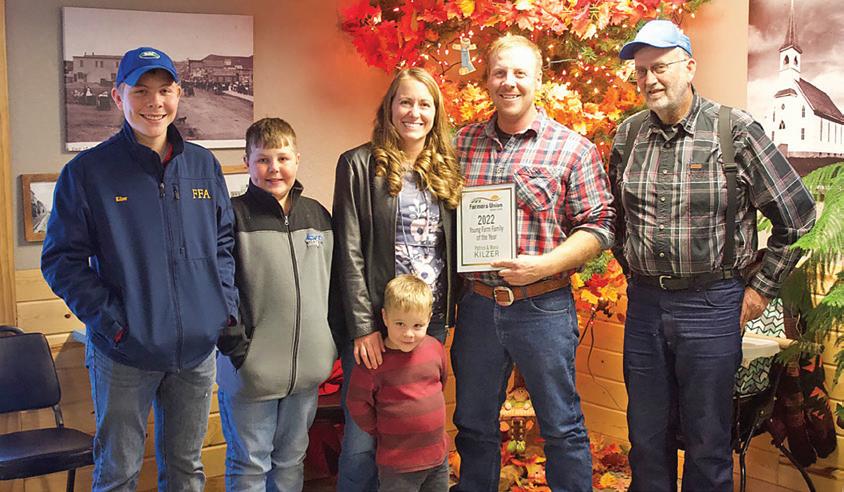
NDFU.org • January 2023 • 29
Abbey Weld and her son won a set of NDFU children’s books during a game of children’s bingo at the McIntosh County Farmers Union convention in Ashley.
Sioux County Farmers Union President Pat Becker, left, presents Pastor Randy and Hazel Hahne with a $500 donation to the Selfridge Assembly of God Food Pantry at the SCFU county convention at Selfridge High School. SCFU also donated $500 to the Selfridge school backpack program.
The Patrick and Maria Kilzer Family was named Adams County Farmers Union’s “2022 Young Farm Family of the Year” by President Bruce Hagen at their annual meeting in Hettinger.
Richland County Farmers Union President Carmen Mahler presents a $500 donation to the Richland-Wilkin Food Pantry as part of NDFU’s Community Stewards program during the RCFU county convention at the Wahpeton Community Center.
LaMoure County Farmers Union President Ron Van Bruggen addresses members at their fall festival in LaMoure. Van Bruggen retired after many years serving the organization, with Mike Schlosser being elected as the new president.
CLASSIFIEDS
Ads must be submitted through the online form at www.ndfu.org. Click “Classifieds” at the very bottom of ndfu.org and fill out the online form. Ads must be re-submitted each month. No exceptions! Deadline is the 15th of every month. Limit 75 words.
MEMBERSHIP DUES MUST BE CURRENT!
FARM EQUIPMENT

FOR SALE
JD 5010, good working condition, runs good, complete with snow plow and chains. 701-2634345, Mary Knutson, Dunseith.
JD GRAIN MOISTURE TESTER; Most items excellent to new condition. Make reasonable offers. 701-838-5014, Donald Eliason, Minot.
1965 C-10, $8000, located in Beulah; 1956 C-3100, located in Calif. 707-425-7315, Vernon Buchmann, Fairfield, Calif.
15-30 MCCORMICK TRACTOR, 1 new tire LT24575R-Load Range E. 2 cream separators, one David Bradley metal grain box like new. 1905 JD metal corn sheller, 4-wheel steel running gear, 1 covered wagon running gear, Saddle and 2 Bridles, 12’ Kirschman drill, 4 Btm. Pony & Packer. Email: larryn@westriv.com. 701-5488020, Larry Nagel, Shields.
TWO STEEL BINS on cones w/aeration fans; Bourgault knock on cultivator sweeps; Used Case IH 8230 feeder chain; combine pickup guards/lifters; 3 triangular grain auger hoppers w/straps/chains to fasten onto grain auger; old front tine rototiller; Simer water pump; farm scale/steel wheels; used 16” JD cultivator shovels/spikes; 4x8’ wooden stone boat; John Blue anhydrous nitrolator w/hyd shut off/hoses. 701-629-9003, Doug Halden, Stanley.
TRACTOR TIRE, brand new 14.9-24 Firestone radial front tractor tire, $800; Used tractor hood from a T6-165 New Holland, sells for $3,300 new, asking $500; 5 nice black Simmental/ Angus cross bulls. Sold cows but bulls are too good to slaughter. Asking $2,500 each, have EPD papers, 2 and 3 years old. Please leave message. 701-597-3107, Ken Koch, Shields.
CULTIVATOR, used Koehn 8-row Danish tine cultivator, set for 30” rows, adjustable, 3 pt. hitch, depth wheels, stand, sway disks on ends. $250 OBO. 701-659-8238, Glen Nagel, Jamestown.
SNOW BLOWER, Rolorenz tractor rear mount, like new. 701-597-3864, Bill Gerhardt, Flasher.
GRINDER MIXER, NH 354 grinder mixer $1800; Grain vac 510 Walinga, good shape $4900; 456 NH mower 9 ft. bar. Can deliver. 701-400-5742, Gerald Miller, Mandan.
WANTED
TRACTORS, IH 706s on up; JDs 5010, 5020, 6030, 4620; MM’s 950’s on up; Olivers; 1964 on up. AC 200, 210, 220, D-21, others; Most tractors 1965 on up running or not. 701-6282130, Linda Lumley, Stanley.
VAC CASE TRACTOR, late 1940s to early 1950s, for parts. 701-441-3112, Patrick Kuntz, Rugby.
JD SICKLE MOWER #39 with 3 pt hitch; Gehl 206 6 wheel hay rake; Gehl 209 9 wheel hay rake; White 598 6 or 7 bottom plow and selecto-speed transmission Ford tractors. 701-2264055, Lloyd Giese, Steele.
FOR SALE
BOOTS, Lacrosse 800 gram Thinsulate Real Tree camo boots, $100. 701-840-1094, Brett Kapaun, Tower City.
CRAFTSMAN 3 TON FLOOR JACK; Pair of car ramps and 4 support jacks; Marquette arc farm welder with helmet, cables, and rods; CH electric wire welder, new in the box not opened; 3/4 in socket set; Propane weed wand and tank; Buddy Flex - Mr. Heater fish house propane heater, 8,000 - 11,000 BTU, new in the box not opened. 701-838-5014, Donald Eliason, Minot.
THREE ANVILS, 100 lb. Acme, 100 lb. Vulcan, and 120 lb. Fisher, all in good condition. Metal and Glass outside Telephone booth excellent condition, Coke upright 50’s bottle machine, 7-UP slider chest type cooler, Columbian post vise, and one Pennzoil cast iron sign base. 701220-5746, Val Ganje, Bismarck.
REMINGTON 870, 12 gauge 21” barrel home defense shotgun. Not fancy but excellent condition; Colt miniature SAA revolver completely functional but no firing. Made in 1988, comes with a beautiful wooden case, original shipping box and paperwork. Perfect to start or add to a mini Colt collection. Call for prices, can send pictures. 30 miles north of Williston. 701-580-335, Martin Hanson, Zahl.
GUNS, Colt model 1911 caliber 45 ACP. National Match model made in 1969 60 series. Like new, easily 98 percent. Book value $2300. Asking $1750. 701-351-3305, Arne Berg, Devils Lake.
SHAMPOOER, Kirby g5 vacuum shampooer; 2 men’s Winter coats; Two bowling balls, different weights; Vintage TV; Antique kerosene lanterns. 701-263-1206, Lathan Romsos, Bottineau.
WANTED
OLD STUFF, looking for the older Indian Head Highway Road signs that would have been used on the State roads from the 1920’s to 1950’s. Used Highway Patrol signs, Indian Head Coal Mine signs, or any other type of advertising signs. ND license plates, ND picked arrowheads, ND small town metal tokens. Advertising items that were giveaways years ago from the local merchants like thermometers, ashtrays, crock jugs etc. 701-220-5746, Val Ganje, Bismarck.
PRAIRIE DOG HUNTERS to hunt on my land. Make reservations now. Email: larryn@westriv. com. 701-548-8020, Larry Nagel, Shields.
GOOD OLDER CAR that gets good gas mileage. Prefer Ford, Chevy or Buick. Please leave message. 701-597-3107, Ken Koch, Shields.
TOPPER/TONNEAU for a Subaru Baja. Hard or soft models. 701-818-1568, Dustin Hammond, Napoleon.
FOR SALE
BALES, misc hay, sorghum, oats, alfalfa and straw bales. Call for details. Fairly priced. 701597-3107, Ken Koch, Shields.
BLACK ANGUS, 48 Black Angus commercial cows. Bred to easy calving bulls. They will start calving in early April. $1800; 600 bales, 5’x6’ excellent Alfalfa & brome grass-plastic twine. Buy 10 bales, get 1 free. 701-400-2683, Doug Neuharth, Hurdsfield.
72 BALES, upland hay, net-wrapped with 569 JD baler. 701-720-1483, Randy Hochstetler, Rolette.
FOR LEASE, approx. 1,112 acres of pasture land and 320 acres of tillable land located in eastern Grant County, West of Shields, ND. Can be rented in one lump sum or broken up into parcels. Call for details and please leave a message. 701-597-3107, Ken Koch, Shields.
Do you know a member who does something interesting or unique? Let us know! We may feature them in the Union Farmer! Contact Editor Chris Aarhus at caarhus@ndfu.org or 701-952-0118 MISCELLANEOUS LIVESTOCK/FEED LAND 30 • January 2023 • Union Farmer
NDFU donates pork to food bank
Christmas came a bit early this year to the Great Plains Food Bank (GPFB) in Fargo when 38,000 pounds of pork spareribs were delivered by North Dakota Farmers Union (NDFU) in partnership with Farmers Union Enterprises (FUE). The recent donation kicks off a five-state giving spree of 180,000 pounds of pork that includes food banks in South Dakota, Minnesota, Wisconsin and Montana for the third year running.
“High quality meat is always among the most requested item by our network of food pantries across the state and to be able to provide to them a donation of 38,000 pounds of pork ribs is amazing, especially this time of year,” GPFB CEO Melissa Sobolik said. “This type of donation is fairly unique to us, and we are thrilled to be able to offer variety to our clients. NDFU has been a longtime partner in our work, and we thank them for continuing to help us feed those in need.”
“Feeding people and building stronger communities is who we are at Farmers Union,” said NDFU President Mark Watne. “It’s a blessing we’ve been able to make this donation three years in a row.”
FUE is comprised of several businesses – the dividends of which help fund Farmers Union organizations in a five-state area. The donated pork came from Redwood Farms in Estherville,
Iowa, which supplies premium pork products to high-end restaurants in New York, Chicago and other cities across the U.S.

In North Dakota, the GPFB is the largest hunger-relief organization and the state’s only food bank. It works with a wide array of individuals and organizations to guide donated surplus food and grocery products to a network of food pantries, soup kitchens, emergency shelters and charitable feeding programs.

NDFU.org • January 2023 • 31
The Great Plains Food Bank receives 38,000 pounds of pork ribs from North Dakota Farmers Union as part of a donation from Farmers Union Enterprises, which is made up of the Farmers Union organizations in North Dakota, Minnesota, Montana, South Dakota and Wisconsin. In total, FUE donated 180,000 pounds of pork among the five states for the third year in a row.
1415 12th Ave SE
PO Box 2136
Jamestown, ND 58402


PERIODICALS –POSTAGE PAID
Farmers Educational and Cooperative Union of America, ND Division
































 Shelby Knox of Ray, Taylor Rath of Williston and Mary Rude of Tolna are the 2022 recipients of the $1,000 Bergman Scholarship from North Dakota Farmers Union.
Shelby Knox of Ray, Taylor Rath of Williston and Mary Rude of Tolna are the 2022 recipients of the $1,000 Bergman Scholarship from North Dakota Farmers Union.









































 After 45 year of being involved, Arlene Olson retired from the Burleigh County Farmers Union board at their convention at the Tumbleweed Bar and Grill in Lincoln. They celebrated her with special cupcakes.
R Jay Paul, left, retired as Pierce County Farmers Union president, after serving many years on the board, during the PCFU county convention in Rugby. At right is new president Dave Teigen.
Logan County Farmers Union hosted 40 Below and its comedy show for its annual meeting at the Downtowner in Napoleon.
Jeff Kipley, vice president of National Farmers Union, paid Dickey County a visit during its annual meeting at the Dickey County Fairgrounds.
After 45 year of being involved, Arlene Olson retired from the Burleigh County Farmers Union board at their convention at the Tumbleweed Bar and Grill in Lincoln. They celebrated her with special cupcakes.
R Jay Paul, left, retired as Pierce County Farmers Union president, after serving many years on the board, during the PCFU county convention in Rugby. At right is new president Dave Teigen.
Logan County Farmers Union hosted 40 Below and its comedy show for its annual meeting at the Downtowner in Napoleon.
Jeff Kipley, vice president of National Farmers Union, paid Dickey County a visit during its annual meeting at the Dickey County Fairgrounds.










